Samford




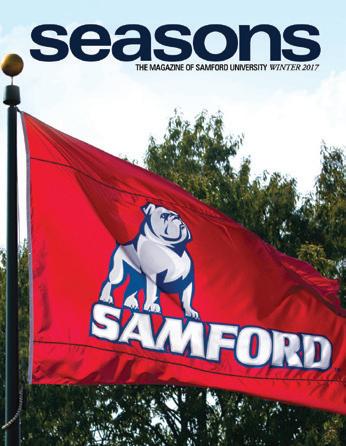
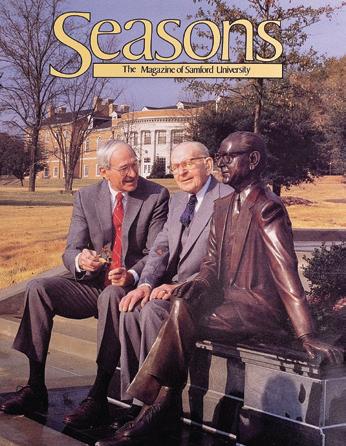
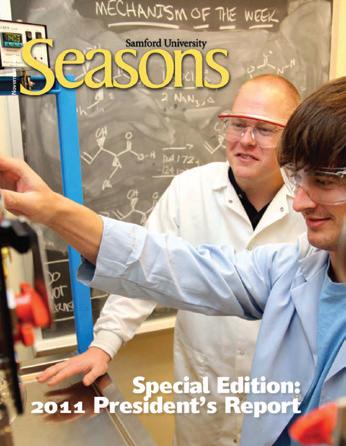
In the very first issue of Seasons magazine, published in summer 1984, the publication’s editor, William Nunnelly ’63, wrote, “Samford is a lively learning place, dedicated to the quest for knowledge and understanding, its goal to provide a distinctive educational experience. Seasons will reflect the university’s efforts aimed at achieving this goal.”
For more than 40 years, the magazine has beautifully fulfilled this purpose.
While originally published as a quarterly magazine—inspiring its name— this frequency has decreased to twice a year. Today, we reintroduce the magazine under a new name, but its purpose—to communicate the latest university news and share a closer look at the stories of the Samford community—hasn’t changed. As you flip through these pages, you will continue to find features that highlight the meaningful work Samford alumni, employees and students are doing here in Birmingham and around the world. Samford remains a “lively learning place,” and Samford magazine will reflect just that.
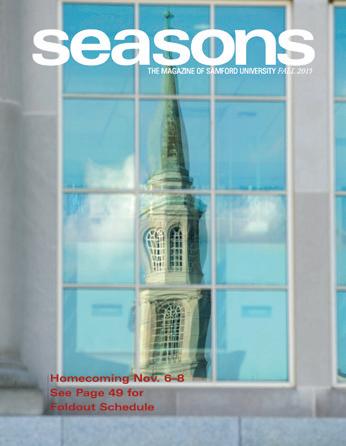
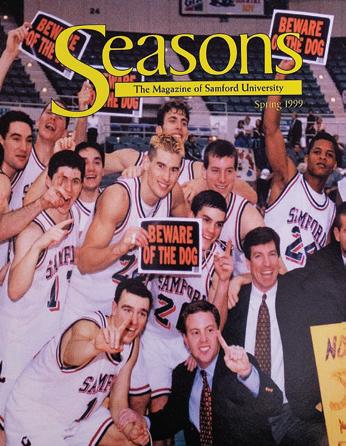
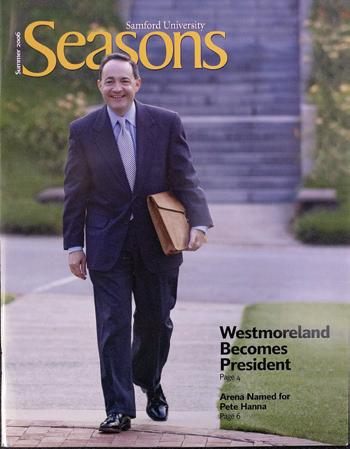
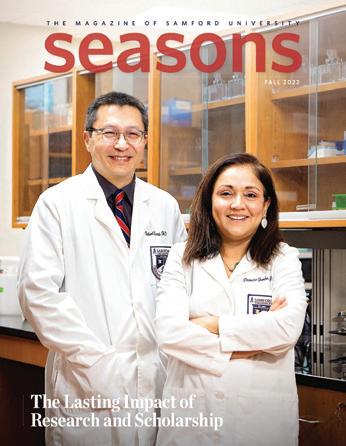
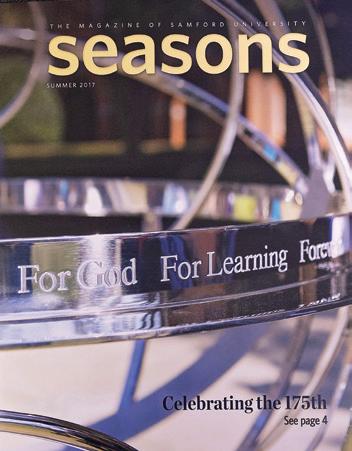
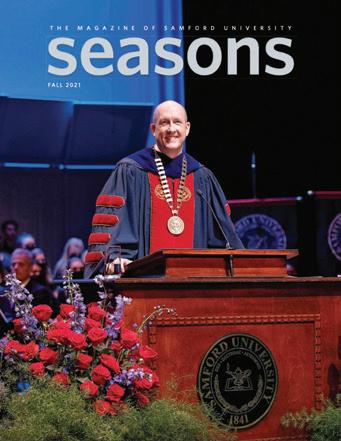
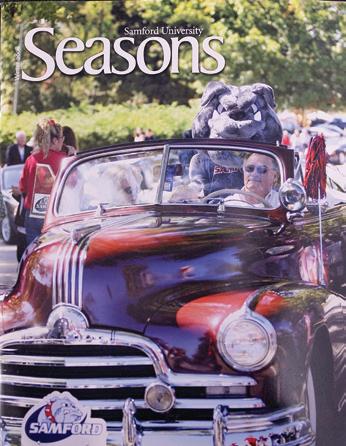
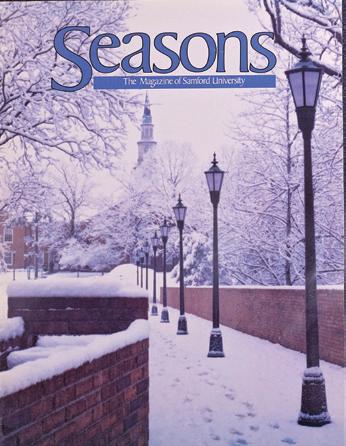
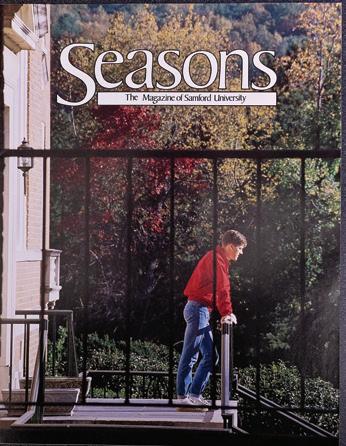
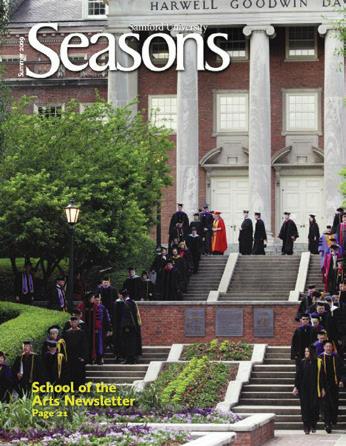

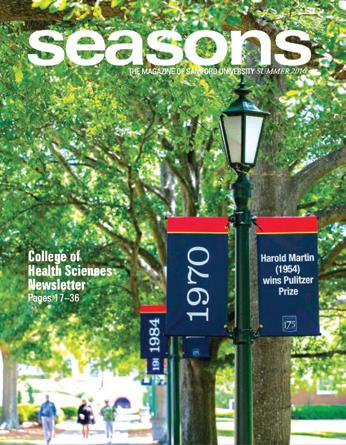

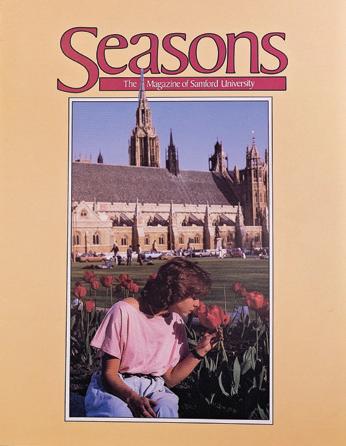



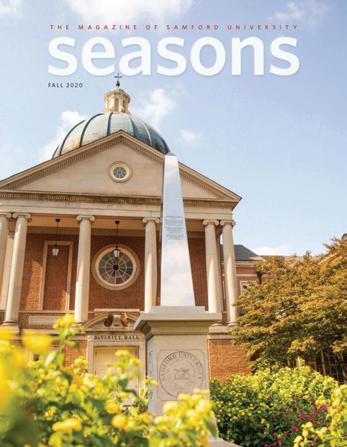

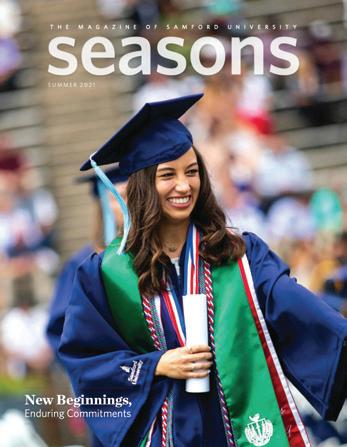
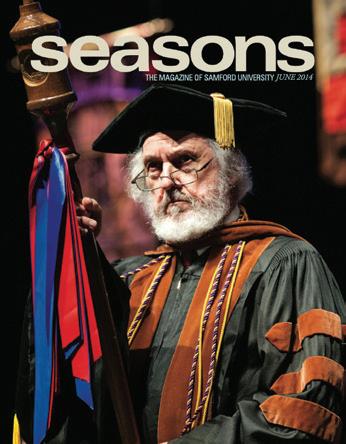
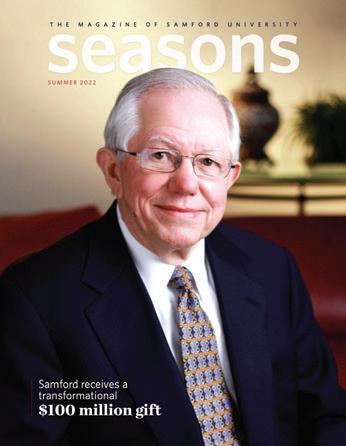
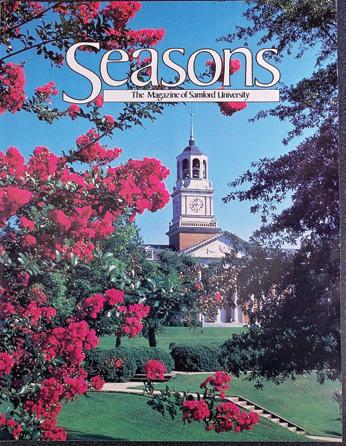
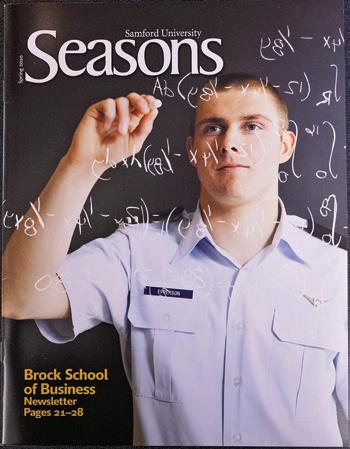
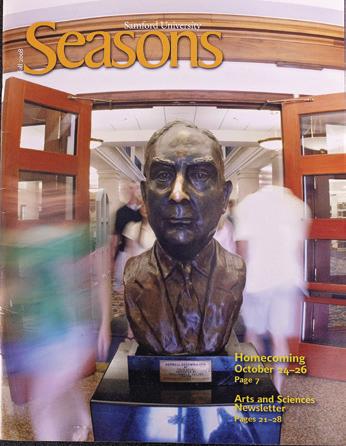
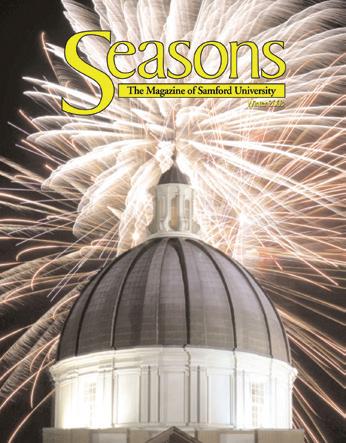
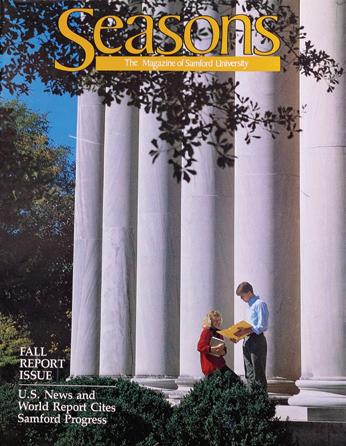
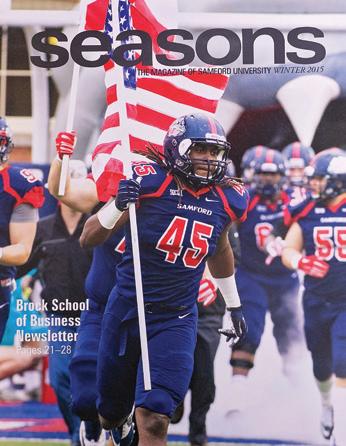
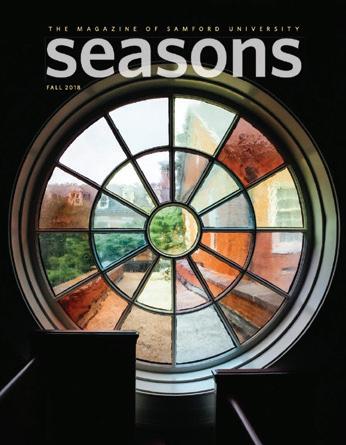
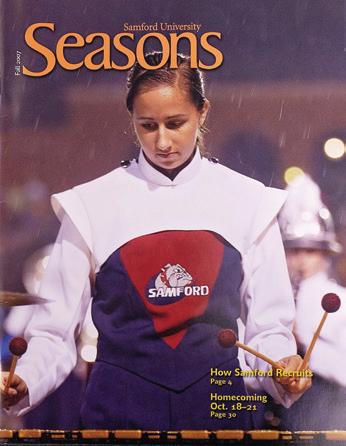
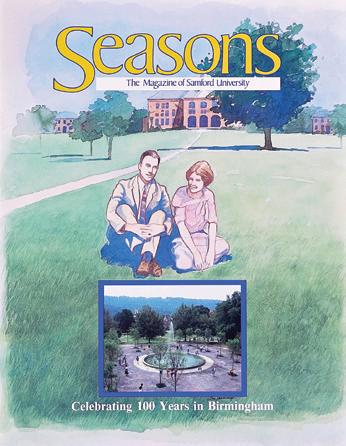
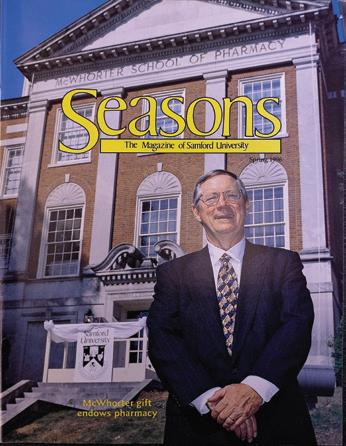
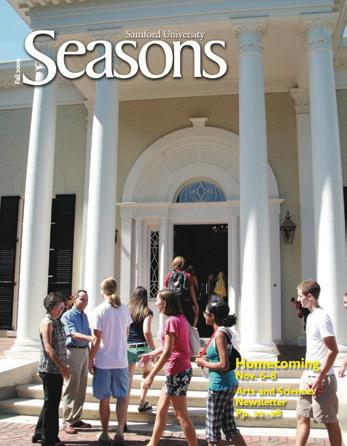
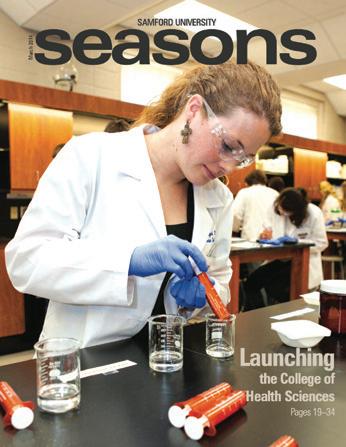
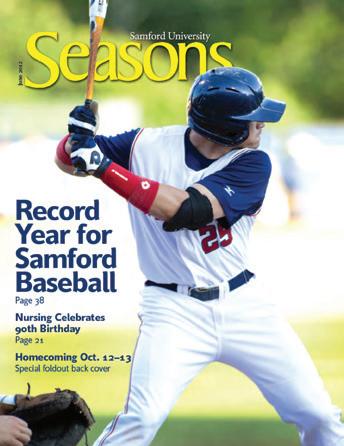
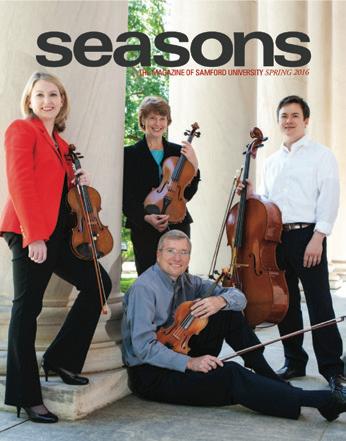
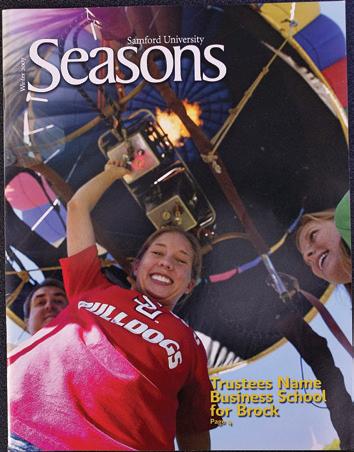

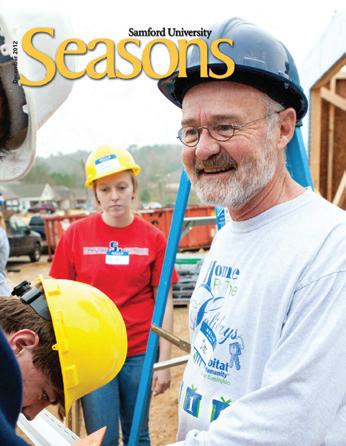


Nicastro Makes a Name for Herself on the National
11 A True Pursuit of Lifelong Learning: At 82 Years Old, Vivian Cunningham Earns Her Master's Degree
Inaugural Cumberland Connection Program Provides Immersive Experience for First-Generation Law Students
Serving Her Country and Campus with Dedication 15 More than Music: Preparing 21st Century Artists

Samford track and field has owned the lanes and raised the bar under the leadership of head coach Rod Tiffin. Since 2008, the teams have collectively won 31 SoCon championships.
The Alumnus Behind Real Taps for Real Heros
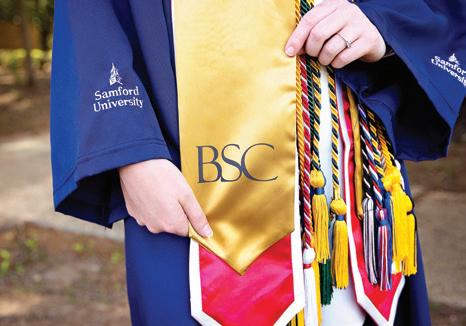
on Mission
The culmination of nearly two decades of research, passion and faith led Rachel Hagues, professor of social work, to help open a boarding school for girls in Tanzania.
Birmingham-Southern College announced it would close, Samford took action to love its neighbor and provide a haven for students facing uncertainty.
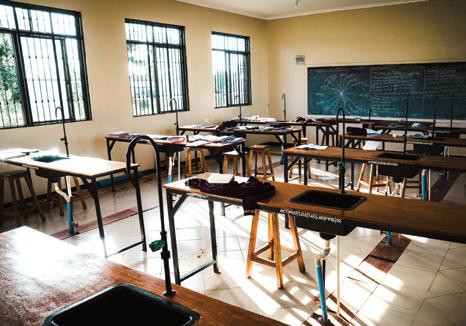
Summer 2025 • Volume 43 • No. 1
Editor
Sarah Waller
Designer
Laura Hannah
Writers
Morgan Black
Kameron Brown
Neal Embry
Zac Fuller
Alison Ingle
Joey Mullins
Gunnar Sadowey
Catherine Smith
Allan Taylor
Megan Winkler
Joelle Youngblood
Photographers
Deidre Lackey
Ethan Lowe
Meg Robinson
Alison Williams
Copy Editor
Lauren Brooks
Contributors
Todd Cotton
Meg Donovan
Carter Schultz
Casey Ramey
Zach Seanor
Miles Wright
Visit us online at samford.edu/news/magazine.
Samford magazine is published twice a year by the Division of Advancement and Marketing for Samford alumni, parents and friends.
© 2025 Samford University
Send questions, story suggestions and address changes to the Division of Advancement and Marketing, Samford University, 800 Lakeshore Drive, Birmingham, AL 35229, or email magazine@samford.edu.
Samford University is an Equal Opportunity Institution that complies with applicable law prohibiting discrimination in its educational and employment policies and does not unlawfully discriminate on the basis of race, color, sex, disability, veteran status, genetic information or national or ethnic origin.

When new and returning students fill the campus in the fall, I’m convinced there’s no more exciting time in life. And then, when students finish their studies in the spring and we celebrate our newest Samford graduates, I wonder if I could ever feel more satisfied and fulfilled. In the glorious middle, we at Samford mark time as we move from Homecoming Weekend to fall break, from Lighting of the Way to Step Sing, from home basketball games to spring break, and eventually to commencement weekend. This regular, predictable pattern brings me comfort and joy.
Seasons change.
For years, the name of this magazine bore witness to the ways the Samford community celebrates the rhythms of campus life each year and the activities that animate our community. We all look forward to reading the stories of student and faculty accomplishments, inspiring speakers and events, and of God’s faithfulness to the Samford we know and love.
But just like the seasons, change is inevitable and often invigorating. The new Samford magazine will continue to help us mark the seasons of life at Samford, and we look forward to sharing the amazing things God is doing here.
Oh, the stories we will tell.
In the Samford spirit,

Beck A. Taylor, PhD President
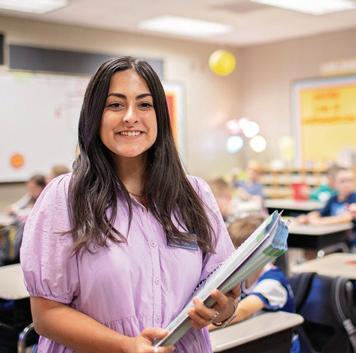
Orlean Beeson School of Education
received the 2025 Billy G. Dixon Distinguished Program in Teacher Education Award from the Association of Teacher Educators (ATE), one of the nation’s highest honors for educator preparation. “This recognition spotlights the tireless efforts and unwavering dedication to excellence of our faculty,” said Dean Anna McEwan. The recognition highlights Samford’s leadership in innovative teacher education. Faculty were honored at the ATE 2025 Annual Meeting, where they presented strategies for meeting the evolving needs of educators and communities alike.
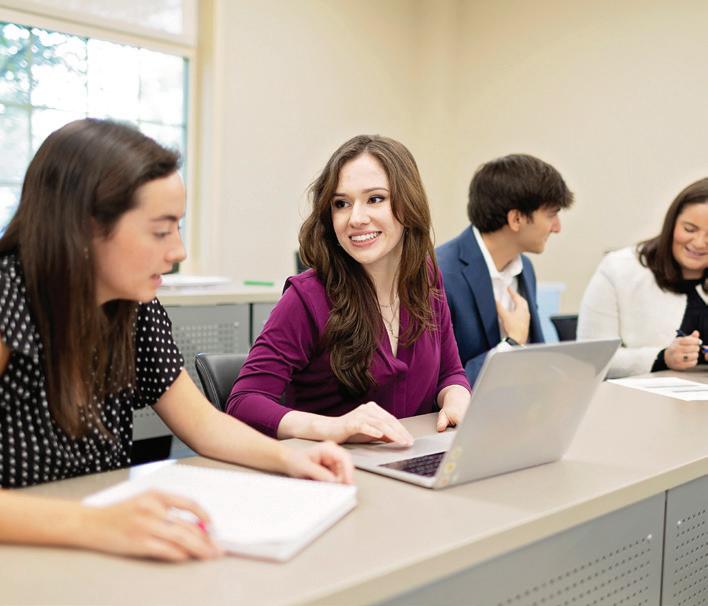
In summer 2026, the School of Health Professions will offer a Master of Science in Performance and Applied Sport Science, a one-year program designed to prepare students to enhance individual and team sport performance and reduce injury risk. Modeled after the National Strength and Conditioning Association’s Essentials of Sport Science, students will learn training strategies, use technology to monitor athletes and share analyzed data to support coaches and other stakeholders. Graduates will be eligible to sit for the nationally recognized Certified Performance and Sport Scientist exam and pursue certification as a certified performance sport scientist.
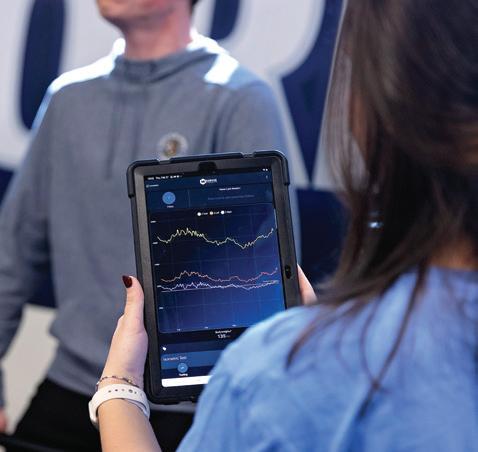
The accounting program in Brock School of Business continues to earn national recognition for its exceptional CPA exam performance. With a first-time pass rate of 78.3% on the 2023 exam, the program ranked 1st in Alabama and 8th nationally among medium-sized schools, placing it in the top 5% of all U.S. accounting programs—a key benchmark of excellence in the profession. Building on that success, the program also ranked 31st overall in Accounting Today’s CPA Success Index, placing it in the top 6% of all U.S. accounting programs and further affirming its strong preparation within the critical 18-month exam window.
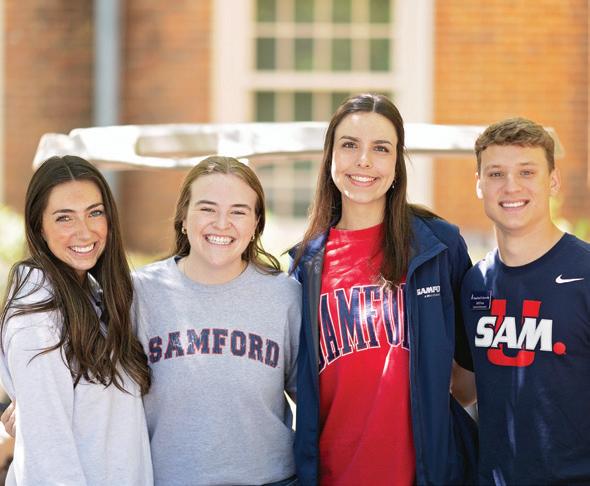
A 24-hour celebration brought together alumni, students, parents, employees and friends with the same goal—to support the future success of the programs, people and possibilities that comprise the Samford community.
More than 1,350 donors raised over $320,000, which set a new fundraising record on Samford Giving Day.
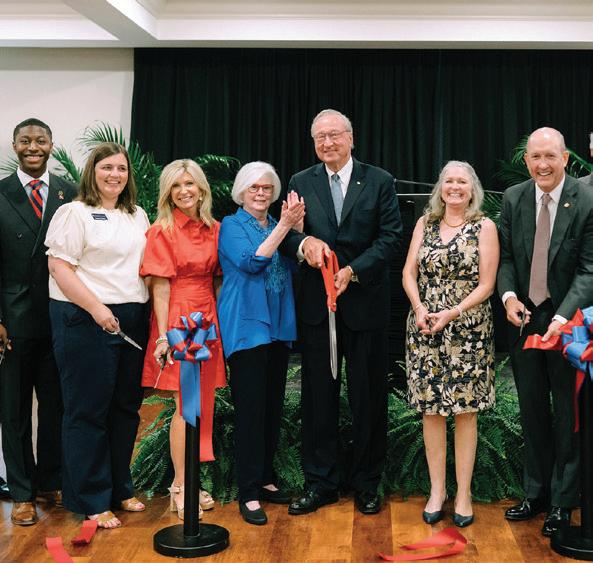
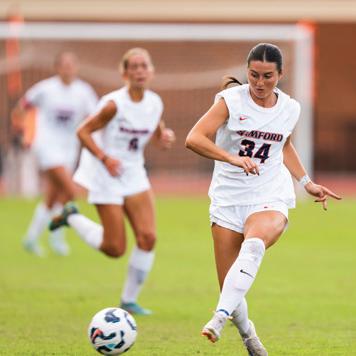
Samford Athletics was awarded the Germann Cup, which is given to the top overall women's athletics program in the Southern Conference, as well as the league's Graduation Rate Award, for a fifth straight year. Samford also finished second in the Commissioner's Cup standings, which is awarded to the top overall men's athletics program in the league.
Moffett & Sanders School of Nursing now offers an online RN to BSN program for registered nurses with an associate degree who want to earn a Bachelor of Science in Nursing. Designed for working nurses, the flexible four-semester program supports career advancement, leadership development and holistic, faithbased care. Courses focus on population health, leadership, transitions in care and evidence-based practice. The program equips graduates for expanded roles and empowers them to serve with skill, compassion and purpose.
In June, the Samford community gathered for a ribboncutting ceremony for two upper-division residence halls Primarily allocated for Greek student chapters, the new halls represent the latest achievement in the first phase of Samford Horizons. Additionally, the plaza between the new residence halls was named in honor of Bill and Kimeran Stevens.

Five distinguished faculty members retired after years of faithful service to Samford. These remarkable educators have left a lasting mark—not only through their excellence in teaching, scholarship and leadership, but through the thousands of lives they shaped along the way.
This year, we celebrate the retirement of the following faculty:
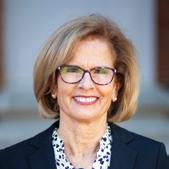
Barbara Cartledge, Brock School of Business Joined the faculty in 2003
Larry Davenport, Howard College of Arts and Sciences
Joined the faculty in 1985
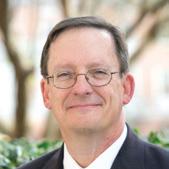
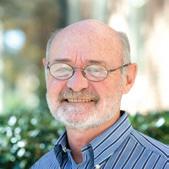
Michael DeBow, Cumberland School of Law Joined the faculty in 1988
Jeffrey Flaniken, School of the Arts Joined the faculty in 1994

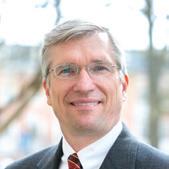
Melissa Lumpkin, School of Public Health Joined the faculty in 2014
SCAN THE QR CODE TO READ MORE ABOUT THESE RETIRING PROFESSORS.

McWhorter School of Pharmacy established a new partnership with RxBenefits to expand its Advanced Pharmacy Practices Experiences (APPE), which Doctor of Pharmacy students complete in their fourth year, to include a new population health outcomes rotation focused on managed care. Additionally, the school collaborated with RxBenefits to create a new postgraduate year one pharmacy residency program in managed care pharmacy. In culmination of this partnership, Samford dedicated a new space to RxBenefits in its College of Health Sciences facilities. The RxBenefits Suite provides a professional environment for students to explore real-world applications of pharmacy benefit management and population health. It supports activities such as journal clubs, virtual meetings and presentations, as well as ongoing work related to the APPE and residency programs.
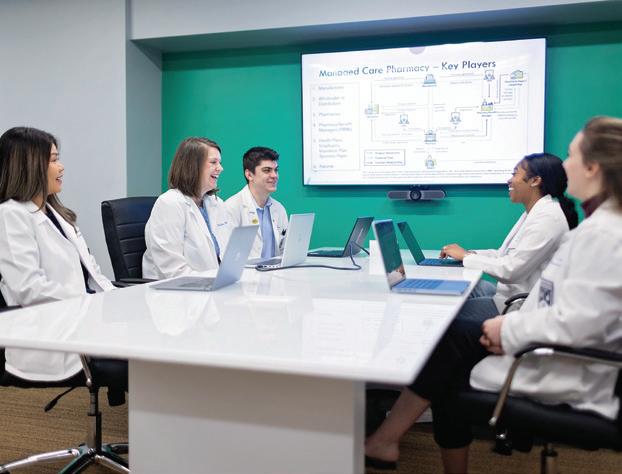
Beeson Divinity School received a major gift to fund full-tuition
Our Risen Lord scholarships for students starting in the 2025-26 academic year. The new scholarships will be available to fulltime master’s students, with priority given to Master of Divinity students who complete the scholarship essay along with their application. These merit-based scholarships will be awarded to top applicants beginning their studies this academic year.
The money will cover the full cost of tuition and fees for the recipients over three years of study, the average amount of time needed to complete an MDiv. “These scholarships are the best we’ve ever had,” said Dean Douglas A. Sweeney. "They're intended for men and women called to faithful Gospel witness both at home and overseas. They make the Beeson difference affordable for more and more students.”

Samford University received a grant of $5 million— the largest single grant in the university's history—from Lilly Endowment Inc. through its Ministry in Rural Areas and Small Towns Initiative.
The grant will support the work of Samford’s Center for Congregational Resources, which provides services to help congregations become thriving ministries. The aim of Lilly Endowment’s initiative is to provide resources to help churches in rural areas and small towns enhance the vitality of their ministries and strengthen the leadership of the pastors and lay leaders.
The Center for Congregational Resources intends to develop the Equipping the Called Leadership Program to help Christian churches cultivate the spiritual formation of congregants and function as anchor
institutions that strengthen their local communities. Content for this program will be developed in partnership with Samford scholars who have expertise in theological education, practice of ministry, physical and mental health education, business administration and community development.
“This impactful gift from Lilly Endowment, implemented through the work of the Center for Congregational Resources and Samford faculty, provides resources to help rural and small-town churches and ministries thrive,” said Dave Cimbora, Samford’s provost and vice president for academic affairs. “By partnering in the training of ordained and lay leadership, we foresee this new program invigorating churches to deepen collaborations across their communities.”
A nonprofit founder who harnesses the healing power of horses, an award-winning landscape architect with a passion for urban green spaces, and the leader of a ministry that offers food assistance and ESL classes—this year’s recipients of Samford’s Medallion Awards are a trio of differencemakers in the Birmingham area who exemplify kindness and dedication through their civic life.
Ray J. Flynn, director of the Ministry Center at Green Springs: For 20 years, Flynn has joined his wife Sandra in leading the ecumenical organization and serving the community primarily through its food bank and English as a second language (ESL) courses. “I think in the first year, we served maybe 12 families a month” at the food pantry, Flynn said. “Now we’re serving 150 families at once.”
Joy Hicks O’Neal, founder and executive director of the Red Barn: O’Neal founded the nonprofit organization that provides equine-assisted services to children and adults with disabilities or traumatic experiences, especially those in low-income families. “It’s special for the kids who come to the Red Barn to have a place where they can belong,” O’Neal said. “Being able to ride horses improves their bodies, their
minds, their emotional health.”

Jane Reed Ross, renowned landscape architect: Ross has led sustainable design projects across the Southeast, including Red Rock Trail Master Plan for Jefferson County, Rotary Trail, Pinson Park, Lincoln Park, Enon Ridge Trail, Railroad Park, Homewood Central Park, Homewood Shades Creek Greenway and the Birmingham Children’s Zoo. “The beauty of a quality space, how it connects in the community and how it brings people together, has always appealed to me,” she said.
(L to R) Robert Holmes Jr., Karon Bowdre, Jane Reed Ross, Ray Flynn, Joy Hicks O’Neal, Beck Taylor, Drew Cundiff

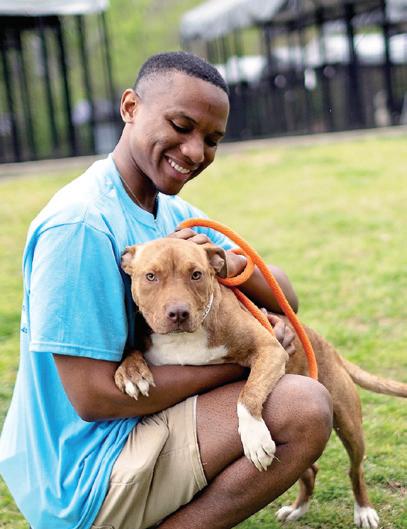
Samford Gives Back, an annual event that brings together students, employees and alumni in March to serve the Birmingham community, had a record number of participants this year. The 1,018 volunteers served 51 local organizations, and the combined effort added up to 4,072 hours of service. Debby Haralson, Samford’s director of community engagement, said she was amazed at the work students accomplished. “We are thrilled to see so many students participate,” she said. “They are a true reflection of Samford’s commitment to community service and celebration.”
The Office of Community Engagement also held its first faculty and staff service project, inviting Samford employees to pack school supplies for local schools and clothing for nonprofits.
Evan Olson, a junior biochemistry major, served on the Samford Gives Back leadership team. “This event gives students a perspective on the world around Samford, and it allows us to live out our faith,” he said.
“It’s a starting point for students to discover what God has called them to do.”
As part of U.S. News & World Report’s 2025 Best Law Schools rankings, Cumberland School of Law ranked 4th in the nation for trial advocacy, reflecting an increase of two spots from the previous year and affirming the school’s established history of being a powerhouse for preparing trial-ready lawyers. This is the highest U.S. News & World Report ranking received by the law school. “Our trial advocacy program has always been one of the best in the nation,” said Dean Blake Hudson. “We are proud to be in the top echelon of law schools preparing students to engage in trial advocacy from the moment they graduate and pass the bar.”
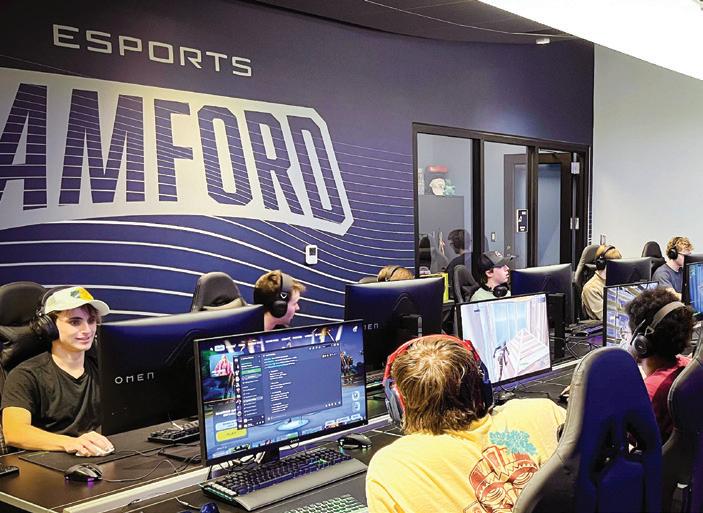
After Samford's esports program launched last September as part of the Campus Recreation, Wellness and Athletics Complex, the spring semester brought competitive play for students.
Six teams competed in three video games, taking on other schools in Fortnite, Super Smash Bros. Ultimate and Overwatch 2. Michael French, esports facility manager and coach, said that four out of the six teams qualified for the postseason in their respective games, an accomplishment he was excited to see in the first season.
The student response has been fantastic. French said, “Our players are some of the most passionate and talented students that Samford has to offer, and the community and culture surrounding that is continuing to grow.” He looks forward to exploring new and impactful ways to engage students and communities at Samford going forward.


Samford’s men’s tennis team won the Southern Conference tournament title in April, marking the third tournament title for the program and the first since 2013. This followed the team claiming the SoCon regular-season championship. "This has been a special season,” said head coach Oliver Reynolds '11. “We’ve probably had the best year we’ve had since 2011, which is pretty crazy because that was my senior year at Samford.” The team competed and lost against 20th-ranked Florida State in the first round of the NCAA Tournament.

In April, Samford Athletics announced two new head coaches. Lennie Acuff was tapped to lead the men’s basketball program, and Matt Wise was promoted to head coach for women’s basketball.
Lennie Acuff, an Alabama native, comes to Samford with a storied coaching career of success, spending the previous six seasons as head coach at Lipscomb University in Nashville. He guided the Bisons to the NCAA Tournament in March and finished the season with a 25-10 overall record.
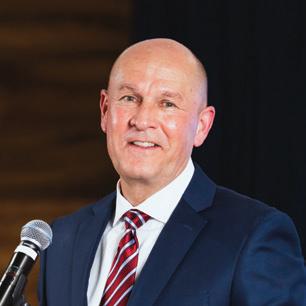
“Winning doesn’t negotiate. Culture doesn’t negotiate. You have to earn it, you have to live it and you have to be about it every day,” Acuff said at his introductory press conference. “Every day we have to get a little bit better. That is what I want this to be about.”
Former associate head coach Matt Wise was promoted to head coach of the women’s basketball program. Wise has been on staff with the Bulldogs for the last three seasons and played a pivotal role, being heavily involved in every area of the program.
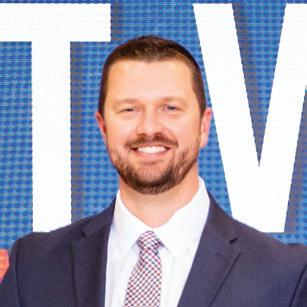
“Samford is a special place where people grow athletically, academically, spiritually. Add to that a connected community, and you really do have a family. We look forward to building Samford women’s basketball and winning championships, as has been done across this department,” Wise said. “Now it’s time to roll up our sleeves and get to work.”
BY JOEY MULLINS
Gabi Nicastro has accomplished a lot in a short amount of time. A junior pre-business major and member of the Bulldogs’ women’s golf team, Nicastro did not know what to expect when her freshman season started, but she showed right away that she could play at a high level, winning her first collegiate tournament by eight strokes.
Since then, she has continued to play at a high level. In two seasons, she has won seven tournaments—five in her sophomore year—and earned bids to two NCAA regional tournaments.
“Going to that first tournament, I didn’t feel any pressure because I was a freshman,” Nicastro said. “But then I won by eight shots, so after that, I felt a little more pressure. But I didn’t really expect to win my first tournament or make it to regionals. That was a really nice surprise to prove I’m good enough to hang with some of the best players in the world.”
At the end of her freshman season, she was named the SoCon Freshman of the Year, finishing second in the conference with a 72.69 stroke average. In her
sophomore year, she was named the SoCon’s Golfer of the Year, again finishing second with a 73.03 stroke average.
Nicastro played in the NCAA Auburn Regional as a freshman and then was selected for the NCAA Lexington Regional in her second season. Additionally, she won the Alabama Women’s Amateur last summer, qualifying for the U.S. Women’s Amateur. She said the experience of playing in those national tournaments early helped in her second regional this season.
“Last year, I felt out of place. I had never really played with girls that good before,” Nicastro said. “Then over the summer I played in the U.S. Women’s Am and that was a bunch of really good girls. Playing in the regional last year
and the U.S. Women’s Am over the summer definitely helped me feel more comfortable at this year’s regional.”
While she is only halfway through her collegiate career, Nicastro said her experience at Samford has already been a memorable one. “I just really like Samford,” Nicastro said. “I like its small size, and how when you’re walking to class you see a bunch of people you know. The community at Samford is good and healthy. Everybody is so nice.”
Nicastro said her biggest goal for the remainder of her Samford career is to win the SoCon Championship, both as a team and individually. Whatever the remainder of her career holds, Nicastro has already made a lasting impact on the Samford women's golf program and the university overall. ◗

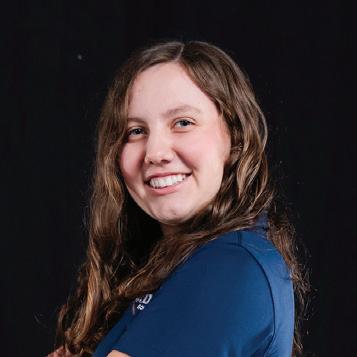
BY ALLAN TAYLOR
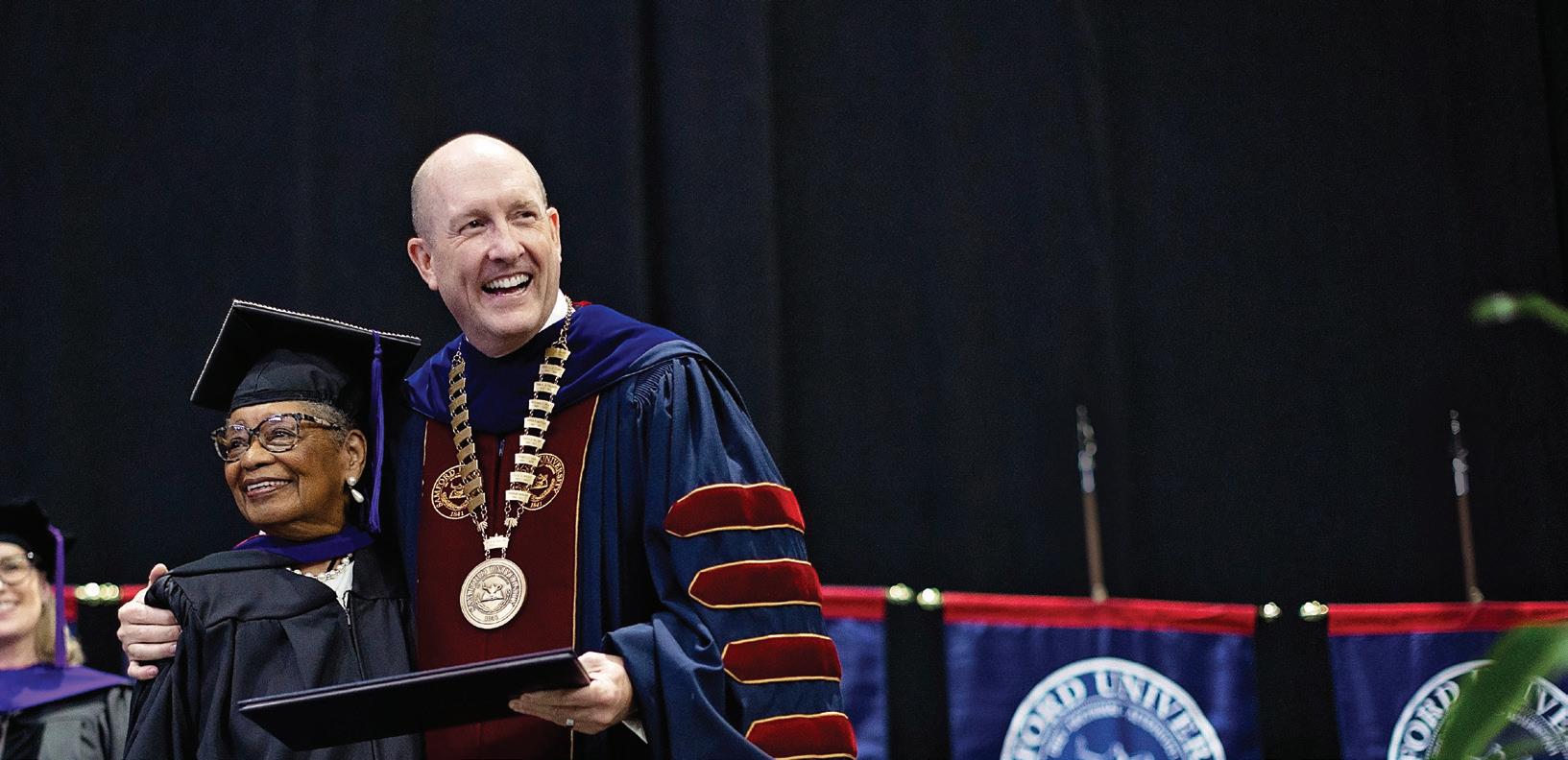
In 2021, when Vivian Cunningham completed her bachelor’s degree at the age of 78, she created a media buzz that felt like something from a movie. Now, she has delivered the sequel, adding a master’s degree at 82.
A great-grandmother and selflabeled “go-getter,” Cunningham received her Master of Studies in Law from Cumberland School of Law in May. “I felt like I was just as young as the other students,” she joked.
President Beck A. Taylor heralded Cunningham for embodying an “emphasis on lifelong learning perhaps like no other person in the Samford family.”
Cunningham completed her master’s degree completely online. From her home desk, she studied legal writing, business law principles and policy implications. “What I like about the teachers is that they’ll give you a chance to get your work in, especially if you’re having a problem understanding,” she said. “They’ll work with you. They’re concerned about you. I love my teachers.”
Navigating the technology wasn’t too tricky, thanks to Cunningham’s son Donald helping her record videos for class, and her daughter Tarra Barnes occasionally troubleshooting the home Wi-Fi.
“Four years ago, I was incredibly excited when my mother earned her bachelor’s degree,” said Barnes. “But watching her determination and hard work—and seeing her push through the late nights to reach this next level—has
deepened my pride in a profound way. It’s truly inspiring to see someone you love accomplish such a meaningful goal.”
As the crowd delivered a standing ovation at commencement, Cunningham’s son grew particularly emotional, having survived a medical emergency two weeks earlier. “It is truly a miracle that I was able to see my mom celebrate her big day,” he said.
Also attending graduation was Cunningham’s 100-year-old mother.
Upon completing her bachelor’s degree in liberal studies in 2021, Cunningham’s story fueled appearances on national news shows. This sparked an outpouring of cards and messages from people who were inspired by her story. “I’m so glad I made an impact on somebody’s life,” she said. “This must have been my destiny to inspire people.”
Along with establishing the Vivian Cunningham Leadership Scholarship four years ago, Samford offered to cover tuition and fees if she pursued a master’s degree. Having some experience as a paralegal, Cunningham chose to attend law school online. “I just wanted to keep learning,” she said. “Samford has been good to me.” ◗
Samford’s renowned academic excellence is now available through a flexible online learning environment. With accelerated terms, competitive tuition and six annual entry points, students can efficiently pursue undergraduate and graduate degrees or professional certifications without compromising quality. Whether you are looking to complete your degree or gain access to career growth, Samford Online can help propel you to the next level.
SCAN THE QR CODE TO LEARN MORE.

BY GUNNAR SADOWEY
Howard College of Arts and Sciences is expanding professional preparation for its students through a new initiative called PATH—Professional Advancement Through Howard. The program connects current students with alumni, faculty and industry professionals through a series of sessions designed to bridge the liberal arts and the working world.
“PATH is designed first and foremost to serve Samford students by equipping them with meaningful real-world preparation,” said Dawn McCormack, dean of Howard College of Arts and Sciences. “By connecting alumni, friends,


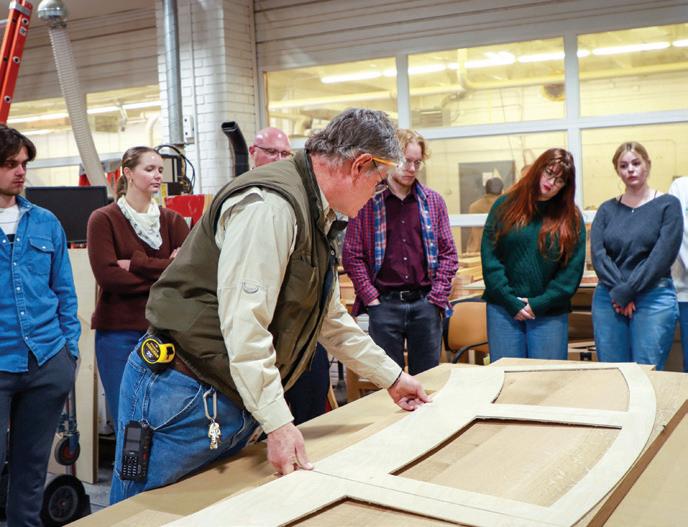
faculty and students, we’re creating intentional opportunities for students to translate their liberal arts education into professional success beyond the classroom.”
This semester, students in the PATH program explored modern prison reform challenges and used knowledge from their disciplines—whether political science, sociology, psychology or history—to propose innovative, values-driven solutions.

The program included four distinct components:
1. An introductory orientation
2. A forum with a guest speaker and panel discussion
3. A field visit to J.F. Ingram State Technical College (ISTC), the sole correctional education provider in Alabama
4. A culminating capstone session where students presented white papers focused on prison reform in Alabama
The connection between this topic and the college’s namesake is intentional. John Howard, for whom the college is named, was a leading advocate for prison reform in the 18th century.
During the field visit to ISTC, students examined Alabama’s current prison system and discussed the future of corrections in the state. And the capstone session gave students a platform to share their recommendations with faculty and professionals working in public policy, justice reform and related fields.
The pilot year of the PATH program reflects Samford’s mission to integrate faith, learning and professional development. By drawing from the university’s liberal arts tradition and placing students in real-world conversations, the program builds both confidence and clarity for life after graduation. ◗

BY MORGAN BLACK
Cumberland School of Law welcomed a select group of students to campus in May for the inaugural Cumberland Connection Program, an immersive introduction to law school and the legal profession.
The weeklong program was designed to give undergraduate college students who may be interested in law, but unfamiliar with the legal profession, early access to the tools, resources and relationships that support success in legal education. Fourteen participants came from colleges across nine different states to explore legal concepts, engage with faculty and alumni, and build confidence for their career aspirations.
“This program was created to make law school feel possible—and to show these students that they belong in this space,” said Blake Hudson, dean of Cumberland School of Law. “They left with a deeper understanding of the legal field and a community ready to support them.”
Throughout the week, students attended classes taught by law faculty, participated in advocacy exercises and heard from practicing attorneys, many of whom were first-generation law students themselves. Sessions also covered leadership development, professional skills and tips for navigating the law school application process.
In addition to academic and leadership components, the event emphasized mentorship. Students were paired with
current law students and alumni, giving them a support network that will extend beyond the weeklong experience.
For many participants, the experience was both eye-opening and affirming. Destiny Gilliard, a senior at Fayetteville State University in North Carolina, said, “The Cumberland Connection Program was a transformative experience. It profoundly shaped my understanding of what a future legal career entails, especially in terms of advocacy and public service, and illuminated the ways law can be used as a tool for social change. The program reaffirmed my commitment to becoming a lawyer who advocates for justice. I am deeply grateful for the support and encouragement I received throughout this program.”
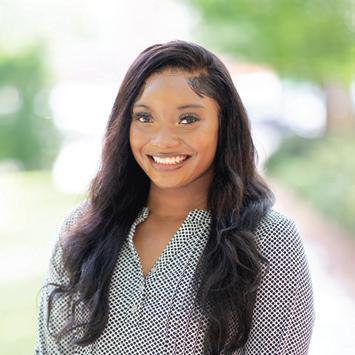
The week was made possible by the generous support of Cumberland School of Law alumni and donors who believe in expanding access to legal education.
With the success of its inaugural year, the Cumberland Connection Program reflects the school’s commitment to increasing diversity and representation in the legal profession by equipping first-generation law students and students who have overcome significant obstacles with the insight and encouragement they need to pursue their goals. ◗
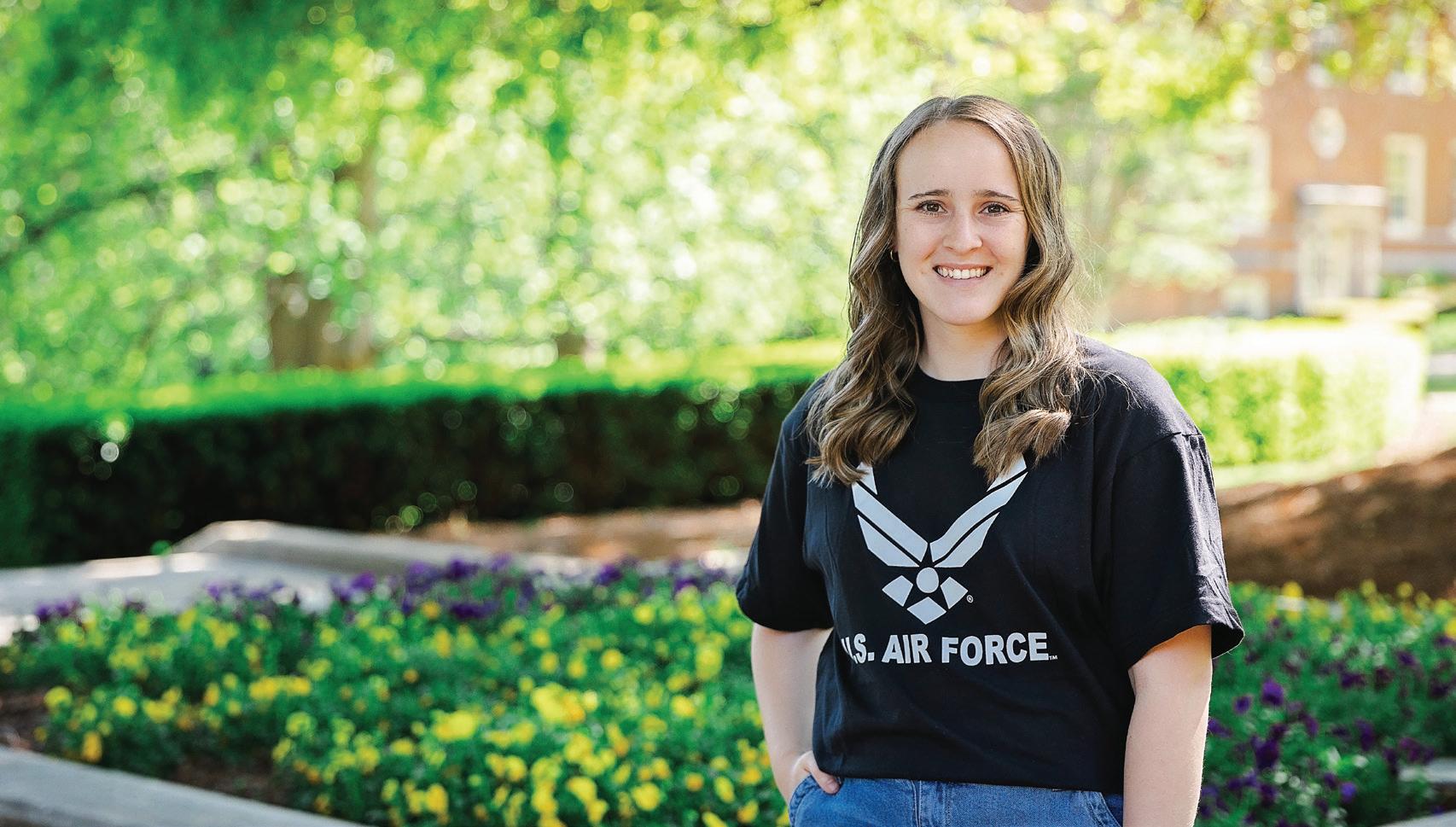
BY GUNNAR SADOWEY
When Grace Fennimore '25 walked across the stage to receive her diploma in May, she represented a rare merger of academic achievement and active military service. A political science major from Huntsville, Alabama, Fennimore had balanced her studies at Samford with her role as an Air Force intelligence analyst.
Raised in a military family—her father and two sisters serve in the Army—Fennimore charted her own path by joining the Air Force during her freshman year. After meeting airmen her father had worked with, she realized she could serve her country while pursuing a traditional college experience. By the end of her first year, she had passed the rigorous testing and medical evaluations required for enlistment.
“Samford is willing to work with anybody who wants to do this,” she said. “I think the university prepared me for the Air Force, and the Air Force has brought valuable real-world experience back to my classes.”
Originally an education major, Fennimore discovered her passion in
political science. The small classes and strong relationships with professors helped her navigate a demanding schedule. At times, she worked full time in the military while maintaining a full academic load. With support from faculty, she tailored her studies to align with her service, using her Air Force role as a credit-bearing internship.
As an all-source intelligence analyst, Fennimore assesses threats, briefs aircrew and monitors global events. Her Birmingham-based unit specializes in air-to-air refueling. The job requires constant critical thinking and collaboration—skills she sharpened through her coursework at Samford.
“I work with incredibly smart and experienced people,” she said. “At
first, I thought I’d never measure up. But over time, I realized that hard work and drive can get you there.”
Fennimore encourages fellow students to consider military service and talk with those who have taken that path. “It’s a big commitment but it offers education benefits, job experience and personal growth,” she said.
She credits her academic adviser, Leslie Armstrong, for helping her transition back to campus after military training. Professors Fred Shepherd and Noemí Oeding also played key roles in shaping her academic journey and drawing connections between public service and political science. ◗
BY JOELLE YOUNGBLOOD
The School of the Arts' commercial music program is redefining what it means to study music. With a curriculum designed to reflect the real-world demands of the industry, students gain far more than performance skills—they graduate as versatile, career-ready professionals.
The commercial music program includes three student bands: Montague (rock/pop), Lakeshore (R&B) and its latest group, Highway 31 (country). Faculty oversee each group, and students take on roles ranging from musicians and singers to sound technicians and marketing managers. Many of these students are also enrolled in business courses tailored to the music industry.
“It’s more than just booking a show,” said program director and associate professor Steven Potaczek. “The students have to have their hands in all of it.”
Via Vicary, junior and section leader for Lakeshore, sees the value in the program’s comprehensive approach. “It’s truly a wonderful program because we’re learning how to navigate and create various revenue streams,” she said.
Kacie Bell, senior and section leader for Montague, acknowledged that Samford prepares students for many roles in the entertainment industry. “There are many facets of the industry that aren’t songwriting and performing. Really, those two facets are in the minority," Bell said.
Courses like Introduction to Music

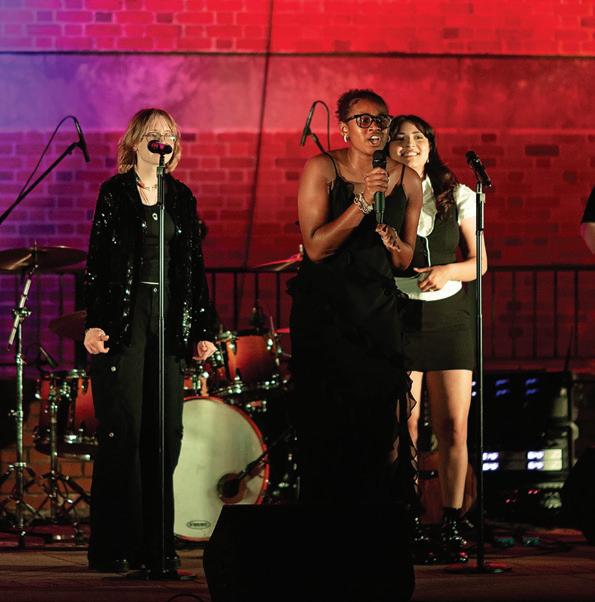
Technology, Live Performance and Touring, and Introduction to Music
Industry equip students with essential skills—from building electronic press kits (EPKs) to understanding contracts. “If I didn’t come to Samford, where I’ve been taught how to create an EPK, I wouldn’t have anything to provide or know where to start when I receive a contract,” said Vicary.
The curriculum extends opportunities to students who don’t want to be on stage. “Some want to go into the industry to be entertainment lawyers, artist managers, tour managers or work at record labels,” Bell said. “Even publicists and finance professionals are part of the picture.”
Samford’s commercial music program emphasizes how being a musician today requires more than talent. “We want to graduate 21st century musicians with artistic, technological and entrepreneurial skills,” Potaczek said. "Being a musician today means embracing every opportunity to grow and lead in a constantly evolving industry.” ◗
Do you recognize the significance of these band names? Samford is located on Lakeshore Drive, and Montague Drive is the primary road that circles central campus. The program’s new country band, Highway 31, is named after the road that connects Homewood with downtown Birmingham.

SAMFORD TRACK AND FIELD HAS OWNED THE LANES AND RAISED THE BAR UNDER HEAD COACH ROD TIFFIN BY
ALLAN TAYLOR


Bursting from the starting block in lane 5, Bradley Franklin seized command immediately. Competing in the outdoor 110-meter hurdles, his strides produced a powerful rhythm: step-step-step-launch, step-stepstep-launch. Before he even reached the halfway point, the race was his to win. Challenged only by the clock, the freshman crossed the finish line at 13.56 seconds, earning the Southern conference title and smashing the old league record by threetenths of a second.
Franklin, in his first year as a Bulldog, has emerged as a new face of Samford track and field, yet there are countless faces responsible for a program whose dominance within the conference now seems as certain as the crape myrtles blooming on campus.
Since Samford joined the SoCon in 2008, the men’s and women’s track and field teams have collectively won 31 conference championships, competing in both indoor and outdoor track and field. The women's team has won six consecutive outdoor and 10 indoor championships, and the men’s team has claimed the last five outdoor and six indoor titles.

“Quote here, Quote here, Quote here, Quote here, Quote here, Quote here, Quote here, Quote here, Quote here, Quote here, Quote here, Quote here, Quote here, Quote here.”
ROD TIFFIN
“We consider our program to be athlete-driven, and it relies on our fourth- and fifth-year guys and girls filtering things down about the kind of tradition that we have.”
ROD TIFFIN
The evolution of this mid-major dynasty requires immense resources and waves of talent, but at the core, there is a unifying element that supports longevity: a culture of soaring expectations.
For Franklin, a high-profile recruit, the unyielding standards became apparent during his first training session at Samford, when he experienced an environment so shocking to the senses that he felt like he had “entered one of those industrial walk-in refrigerators.”
“It was just different here,” he said. “Everyone was pushing each other so hard. After every rep they were encouraging you to get up and get ready for the next one.”
That climate, one of student-athletes holding each other accountable to build a championship mindset, is precisely what head coach Rod Tiffin envisioned upon his own arrival to Samford in 2007, when the roster was composed almost exclusively of distance runners. Building out the program with sprinters and field event participants required administrative commitment, aggressive recruiting and a coach who could deliver the plan.
That suited Tiffin, who recalls, “I don’t think they hired me to keep the status quo.”
After Samford swept the 2025 SoCon Outdoor Track and Field Championships in May—the fifth year in a row that both men’s and women’s teams were victorious—athletics director Martin Newton marveled at Tiffin’s run of success.
“He’s so competitive in everything he does,” Newton said. “He has dominated this league because he has a great
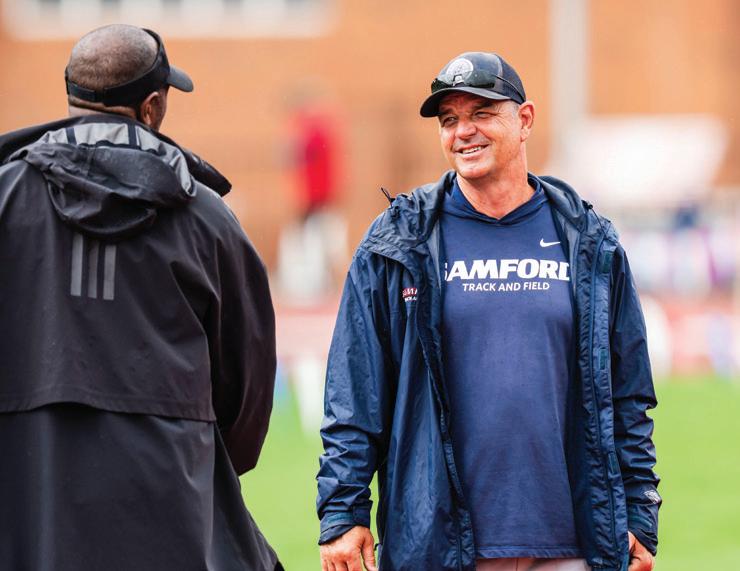
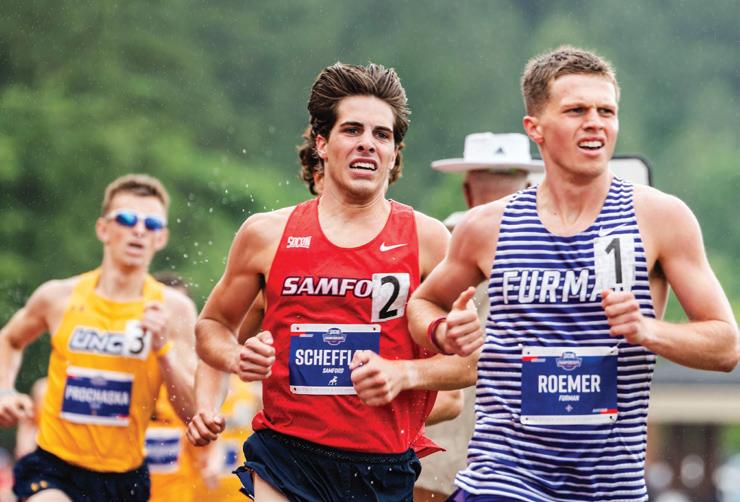
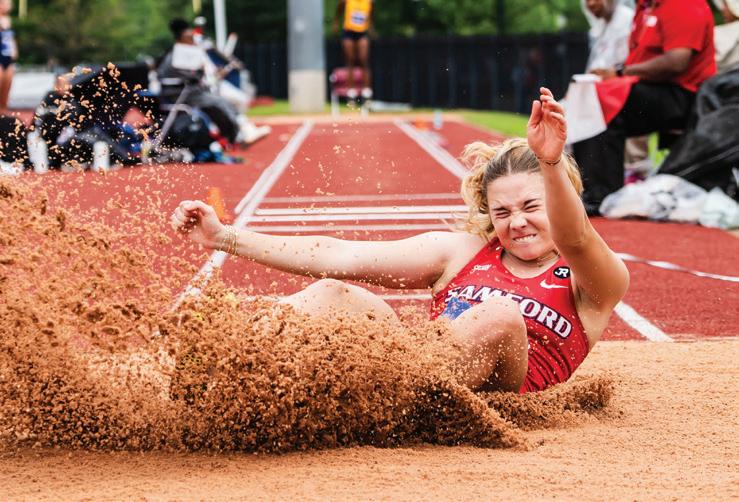
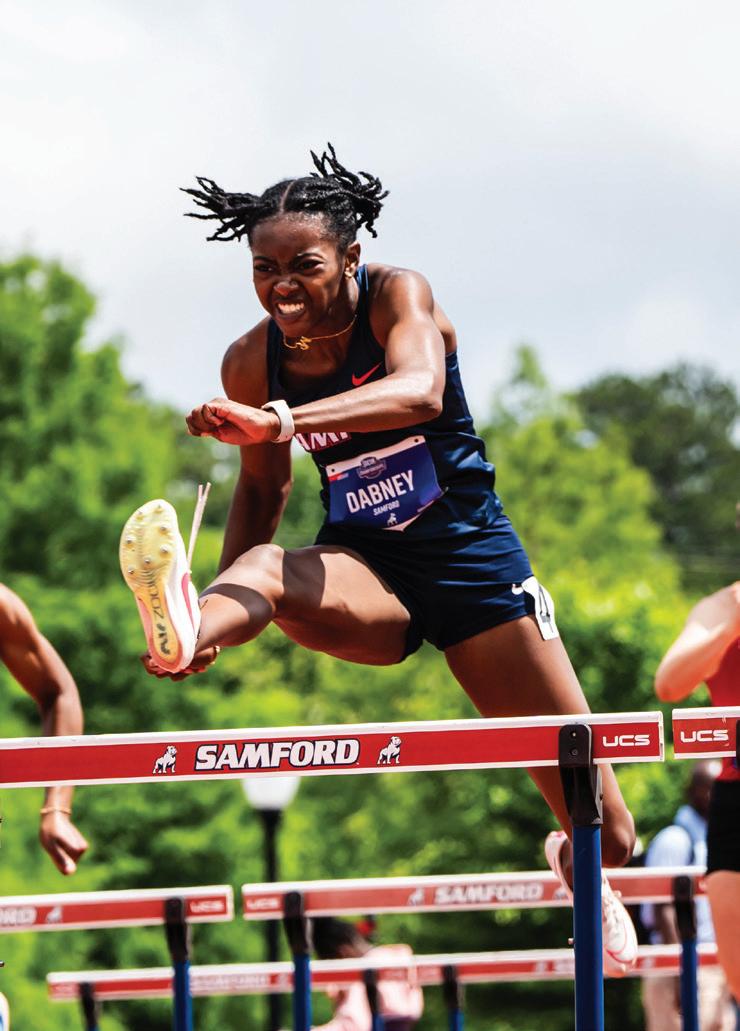
understanding of how to put a team together. When it comes to setting up a roster to score points and win championships, I think Rod is as good as anybody in the country.”
That traces back to Tiffin’s affinity for recruiting student-athletes who can contribute across multiple events. In track and field, the top eight finishers earn points in most events—typically a 10-8-6-5-4-3-2-1 scoring format. Teams are jockeying for crucial scoring in the middle and rear of the pack. Advancing more student-athletes through the preliminaries increases the chances of a school scoring in the event final. (Behind Franklin’s runaway victory in the 110-meter hurdles, for instance, Samford sprinters earned points for placing third, fourth and eighth.)
“We want to build from decathlon out on the men’s side and from the heptathlon out with the women. We’ll always have four to six decathletes in our program, because they can spread out and do so much when we need a little extra help here and there,” said Tiffin, who was a two-time All-SEC decathlete at Auburn University in the late 1980s.
An Auburn degree in economics still hangs on his office wall, though it’s merely a reminder of the year he toiled as a mortgage banker. “Wearing a suit and tie every day, that just wasn’t me,” Tiffin said. “I was thinking, ‘What are you doing, man?’ It was the first time I had been out of athletics in my life.”
He got his coaching start as a grad assistant before becoming DI’s youngest head coach at UAB, where he admitted, “I really wasn’t prepared to be a head coach. I could have been confused for a student because I was so young.”
Tiffin truly blossomed during 13 years as a full-time assistant at both Auburn and the University of Alabama under the late legend Harvey Glance.
“Harvey and I had those years together, and I figured out a lot about what I wanted to do as a head coach when I got that opportunity again,” he said. “The time that I spent with Harvey taught me so much about how I would want to run a program. It made me the person and the coach that I am today.”
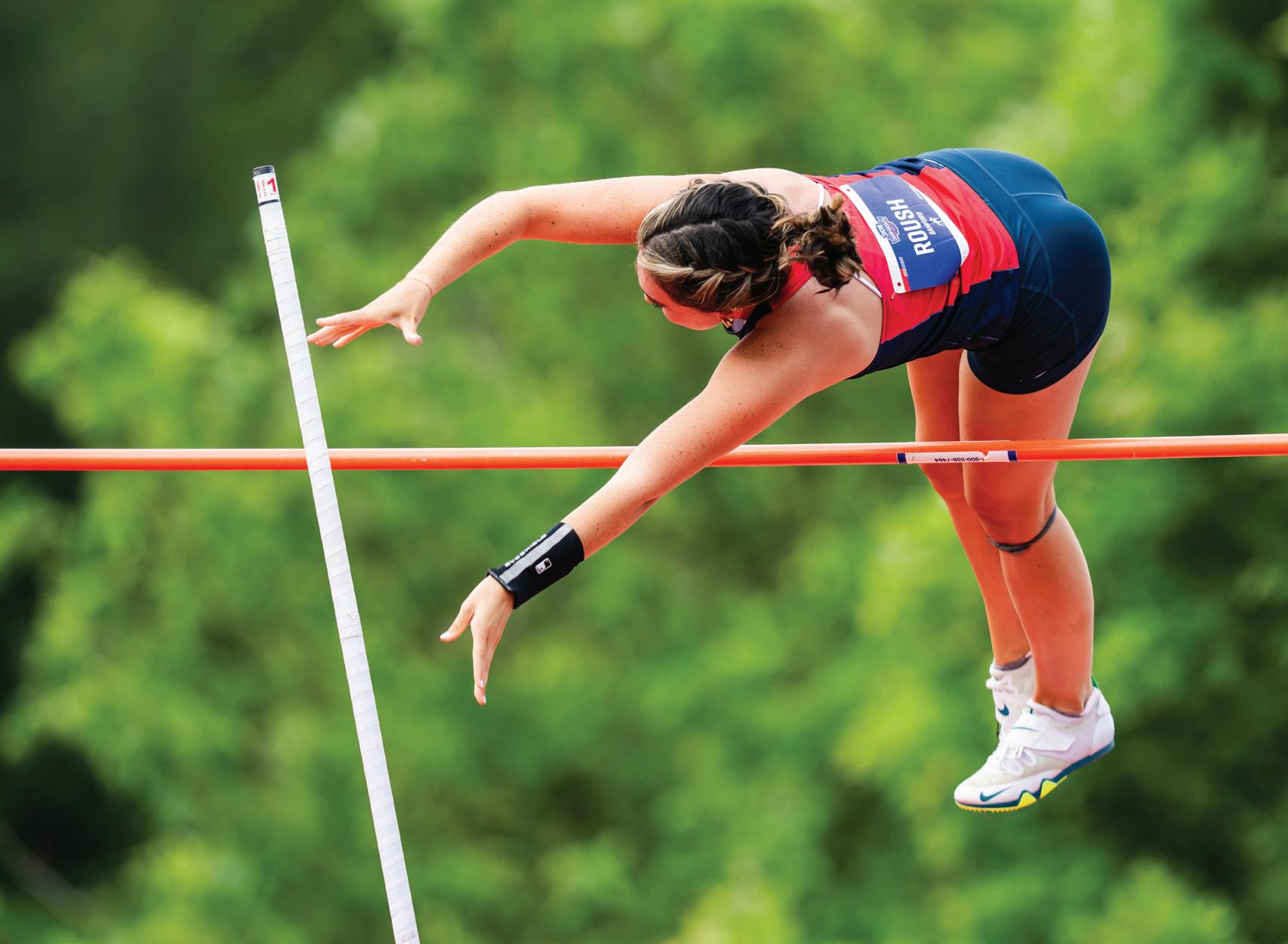
The coach he is today is absurdly decorated. Samford’s stretch of dominance has resulted in Tiffin earning 24 SoCon Coach of the Year awards spanning the indoor and outdoor seasons. He compares the momentum to “a ball rolling downhill,” with each group of new recruits learning the “Samford way” and then developing into exemplary leaders for the next batch of newcomers.
“We consider our program to be athlete-driven, and it relies on our fourth- and fifth-year guys and girls filtering things down about the kind of tradition that we have,” he said. “The older athletes are walking the walk every day, and they have managed to keep it going for years and years. If I’m the one who’s having to yell and scream at people out there, it’s not going to work.”
When Tiffin departed the University of Alabama to become Samford’s head coach 18 years ago, he implored pole vaulter Pat Wells to come along. At that point, Wells was a semester shy of graduating in Tuscaloosa and about to give up on a college track career that had been defined by multiple ankle surgeries and untapped potential.
“I thought I was done,” Wells said. “I wasn’t traveling with the team at Alabama, and being on a rehab schedule, I had lost my motivation. But Coach T said, ‘No, Pat, you can’t go out like that. You’ve got to go with me.’ I think he knew my heart.”
The coach who had recruited Wells out of high school made a convincing argument once again, convincing Wells

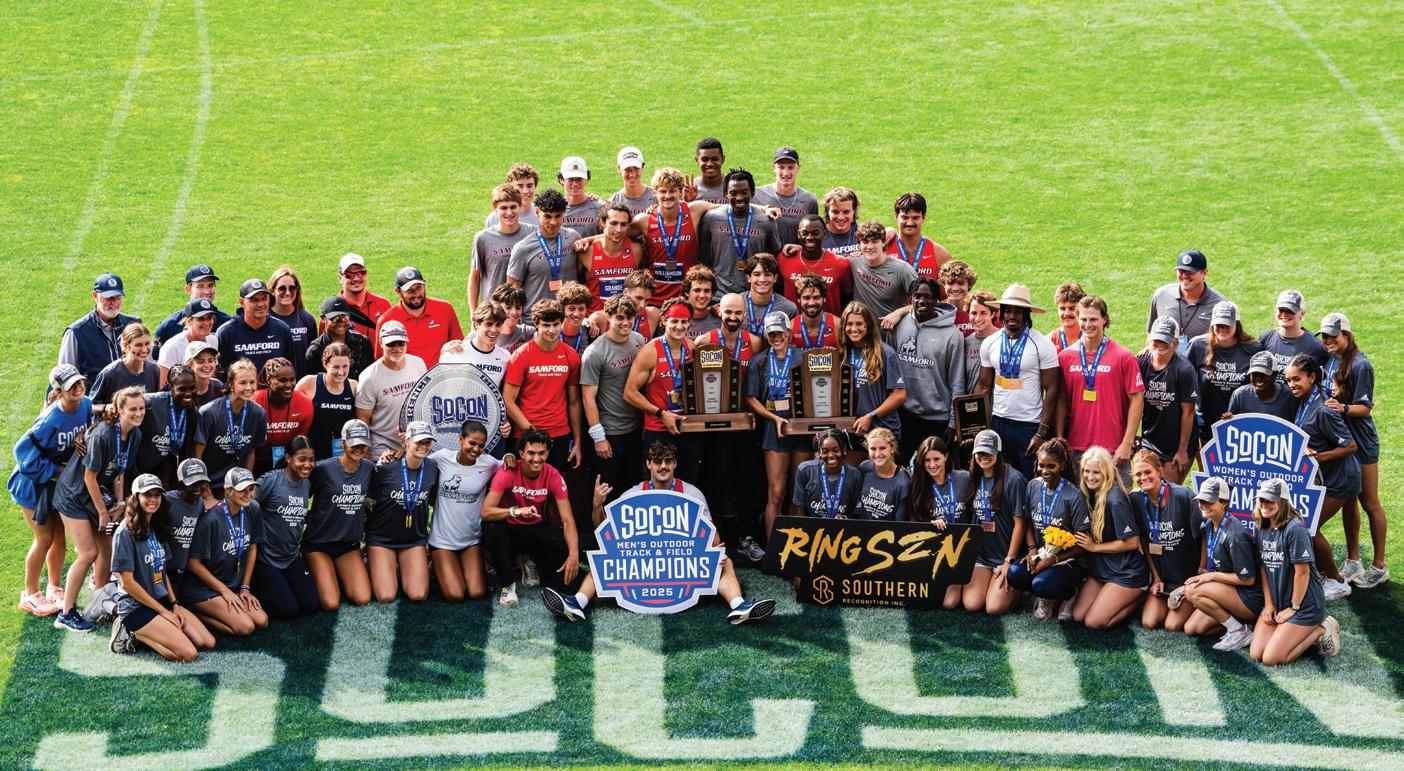
Seaman became a five-time All-American and set a SoCon indoor record, another example of Tiffin coaxing student-athletes to heights they might not see in themselves.
Samford has served as a soft landing for several transfers from the SEC and other power conferences. At the mid-major level, student-athletes can be less than perfect and still survive the prelims.
to transfer to Samford even though it meant losing 48 hours’ worth of class credits toward his finance degree.
The sacrifice proved worth it. Wells embraced the fresh start at Samford and authored a stark turnaround, qualifying for the NCAA Outdoor Track and Field Championships three consecutive years. His already-close relationship with Tiffin grew so tight that the two candidly discussed whether Samford should consider bringing in another pole vaulter, Tennessee transfer Michael Seaman.
“I couldn’t be selfish,” Wells said. “Just like I benefitted from a fresh start, Michael, who had broken his back at Tennessee, needed a fresh start. It was more about how we could invite more people to the table and improve as a program.”
“There’s a little bit of room to breathe,” said Tiffin. “They can come here and end up being All-Americans because they have the talent. It’s just a little bit of a mindset that we help them work through.”
Wells wound up completing his finance degree at Samford in 2010 and added an MBA two years later. Now 38, he oversees 110 employees as CEO of two companies, frequently using lessons gleaned from watching Tiffin galvanize the track teams.
“It shaped my life, and it shaped how I manage and lead people. Coach T did it better than I’ve ever seen it done. He led us as a team while coaching us all as individuals. That means you can’t treat everybody the same. There are certain people you’ll give three, four or five chances because you see that they’re doing the right things and pulling it
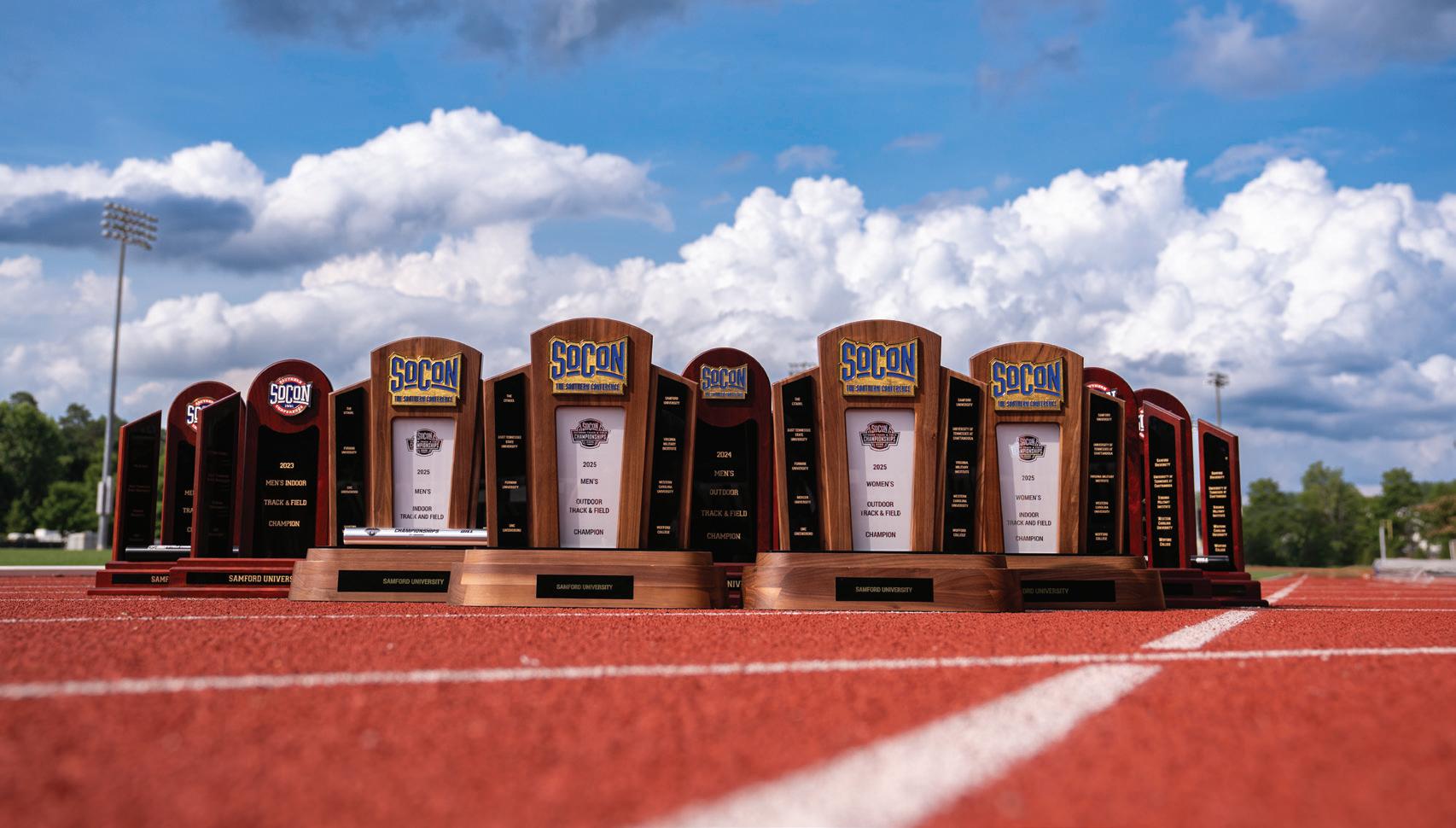
together. You just give certain people some grace,” Wells said. “That takes effort, energy, emotion and time to get to know people individually. It’s hard. A lot of people want to manage by the employee handbook, but that doesn’t breed loyalty or trust. It doesn’t breed relationships.”
On the opening day of the 2025 SoCon Outdoor Track and Field Championships in May, alumna Ashley Cope met several of her former teammates at the track to watch their alma mater compete. Her thoughts drifted back to 2014, to the meet that portended Samford’s rise, when the men’s and women’s teams cheered each other on during their first sweep of SoCon titles.
“Lining the fence that day and watching as it came down to the final relay, it’s still one of my favorite memories,” Cope said. “We were all training partners who had suffered through workouts together, so we were really invested in each other.”
That was Cope’s senior year, marked by a SoCon repeat in the heptathlon. She also won the 2014 pentathlon, along with the 100-meter hurdles and pole vault in 2013. Her

championship assortment led to her induction in the Samford Athletics Hall of Fame and harkened back to the versatility Tiffin seeks in student-athletes.
“I think young people should play as many different sports as they can instead of specializing,” he said. “If I’m recruiting a young person and they’re doing four sports and they’re talented enough to be successful, that’s the person I want. I remember signing Ashley Cope after she called me up and was excited about scoring 37 points in her high school basketball game the previous night.”
Cope almost wasn’t a part of the 2014 team’s breakthrough. Having been stricken with mono in the fall, her training lagged. Tiffin suggested a redshirt season might be best for her individually despite admitting “we’re not going to be able to win without you.” The thoughtfulness around giving her a choice showed why Tiffin is so relatable to student-athletes.
“He’s super personal to the point I think of him as a dad,” she said. “He very much wants you to have a good college experience, just like a parent would.”
After graduating, Cope spent eight years as an assistant

be successful,” Tiffin said. “We have two boost treadmills— not the 10 you might see lined up at a Power Four school, but we have two. And we have an underwater treadmill, whereas you may see five of those at a Power Four school. You’re going to get shirts and practice gear and two or three pair of shoes. You’re just not going to get 20 things that you can give out as Christmas gifts.”
As he toured the recruiting circuit, Franklin believed he could pursue greatness at Samford. Afforded space to develop and build confidence, he wouldn’t risk getting crowded out among the six or seven student-athletes competing within one event at a Power Four program. “At the core of my decision,” he said, “I knew at Samford I could be a priority.”
It also helped that Samford’s School of the Arts is placing an emphasis on Franklin’s preferred major, game design. If a record-smashing sprinter designing the fluid movement of video game characters seems too on-thenose, Franklin said his biggest adjustment to college life has been balancing his track schedule against the slew of paintings, drawing and digital class projects.
under Tiffin. During this time, she helped recruit AllAmerican Selena Popp ’19, who broke all the records Cope set as a student-athlete.
“I think it’s cool to have better athletes follow in your footsteps. That’s the fun part about watching the team continue to be successful. Referrals are your best clients, and that’s what attracts great athletes to come in,” she said.
Winning the 2023 Alabama Class 7A state championship as a junior at nearby Thompson High School gave Franklin a promising profile. He then emerged among the nation’s elite hurdlers his senior year by lowering his time in the 110-meter hurdles from 13.77 to a state-record 13.37.
Landing a recruit like Franklin is the latest example of how far Samford has elevated beyond the typical mid-major program. “Recruits see that we offer big-time DI competition in a small-college environment,” Tiffin said.
Winning is contagious and resources are more than sufficient.
“You’re going to have everything here that you need to
The adjustment he fretted over the most—moving from 39-inch hurdles in high school to the NCAA’s 42-inch standard—hasn’t hurt his competition profile. Franklin won the SoCon indoor 60-meter hurdles in a school-record 7.60 seconds. That performance earned indoor Freshman of the Year honors from the conference and qualified Franklin for nationals. His deepening relationship with Tiffin has been a bonus.
“The fatherly descriptor is pretty accurate because he almost feels like a track dad,” Franklin said. “He locks in and stands on business when he needs to, but most of the time he’s really chill and encouraging.”
As Samford’s success generates opportunities for Tiffin to return to a Power Four program, he insists “there’s no better job for me in the country.” There’s satisfaction in the day-to-day grind of training young people, helping them break through barriers, helping them realize “things that they don’t even know about themselves.”
Suggesting retirement may be more than a decade away, Tiffin is optimistic that the compounding interest of championships, and the buy-in that makes student-athletes accountable, can continue replenishing the dynasty.
“I try not to count the trophies, and I try not to look back,” he said. “I know what it takes every time to win, and it’s not easy. That’s why I always say the next championship is going to be my favorite.”

As Birmingham-Southern students faced uncertainty, Samford took action to love its neighbor. The students and the university will be forever changed.
BY ALLAN TAYLOR AND SARAH WALLER
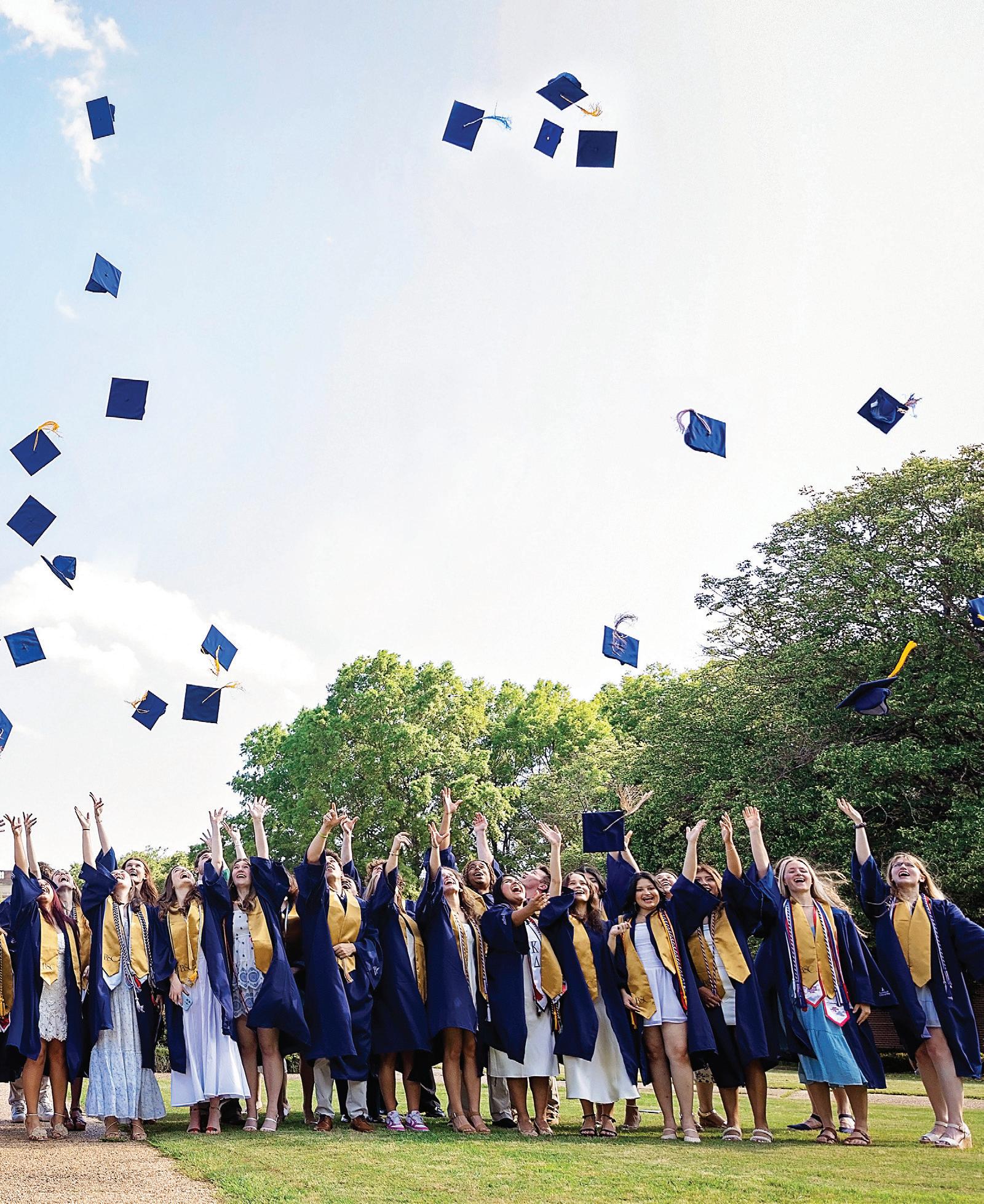
announced in March 2024 that it would close, more than 700 students were faced with instant uncertainty. Would their course credits transfer? Could they keep their scholarships? Would it still be possible to graduate on time?
As questions swirled through the minds of students and their parents, the administration at Samford University went to work. Committed to loving and serving BirminghamSouthern as a neighbor, located less than 10 miles away, Samford began a massive behind-thescenes effort.
“While we prayed alongside Birmingham-Southern, asking God to find a way to keep the college going, we knew that when the final decision was made, work needed to start immediately to help ensure the continuation of studies for the students who were affected,” said Samford President Beck A. Taylor.
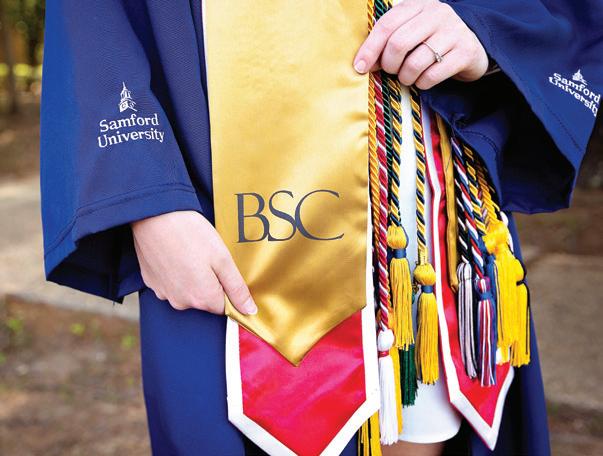
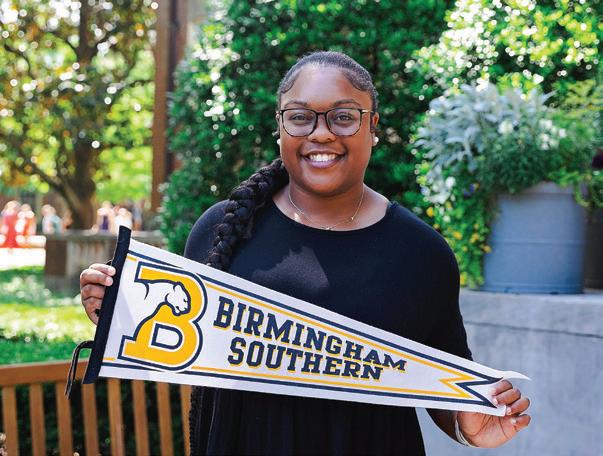
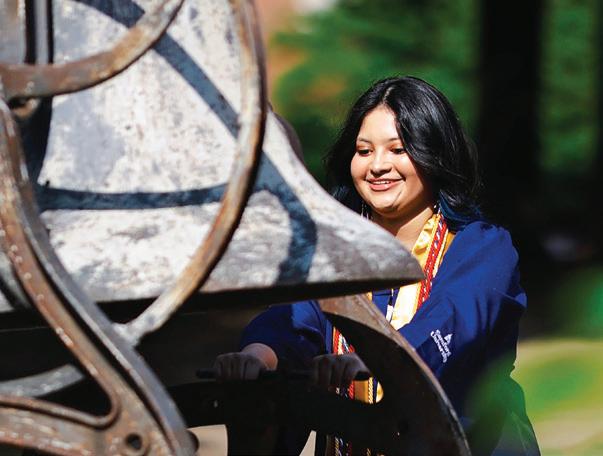
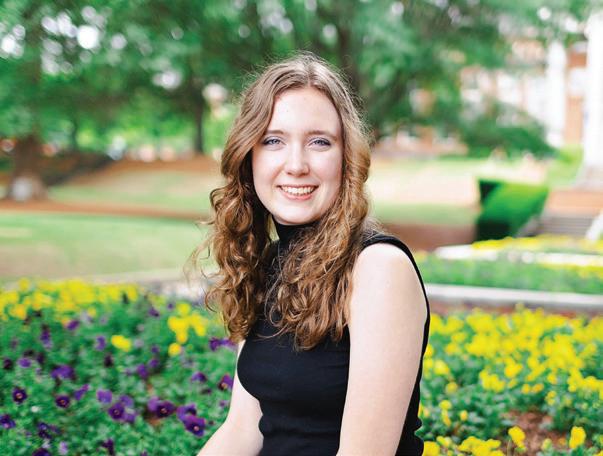
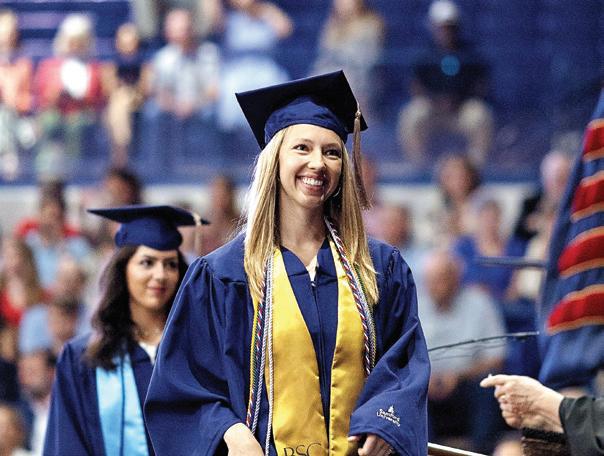
Samford announced it would waive all application fees and deadlines, suspend on-campus housing requirements, and most remarkably, accept all earned credits awarded by Birmingham-Southern, including credits the college accepted as transfer from other institutions. This was a rare exception that required accreditation waivers from the Southern Association of Colleges and Schools.
Over the summer, 151 undergraduate students transferred to Samford from Birmingham-Southern.
“We intended to make this transition as seamless as possible for the students—that was our number one thing,” said Marci Johns, Samford’s senior associate provost. “Academic advisers and registrars sorted through a ton of individual puzzles, which was a big lift, considering every student came with different degree requirements. It was all worth it when we saw the gratitude from the parents of Birmingham-Southern students who had no idea what was in store for them when the announcement first came.”
William Penley ’25 was on spring break with 15 of his friends when the word reached them that BirminghamSouthern would close. He recalled how within minutes, everyone was on the phone with their parents, trying to figure out next steps.
“A lot of my friends were hoping to stay in Birmingham instead of relocating to a different town for just one more year of college,” he said. “When Samford came out talking about accepting all our credits and matching tuition, it was amazing. It was a blessing.”
A marketing major, Penley quickly set out to meet his new Brock School of Business professors. The relationships he built proved fruitful in courses that required students to build upon curriculum from previous semesters.
“Professors were so helpful when I needed my hand held a little bit,” he said.
Penley even picked up two concentrations in sports marketing and professonial sales, determined to make the most out of his short time at Samford. And as president of Birmingham-Southern’s chapter of Sigma Chi, Penley was grateful to be able to get involved with Greek Life at Samford. “When you’re just jumping into a new school during your senior year, you need to make friends in order to feel part of something.”
With the transfer agreement, Samford also waived the undergraduate degree standard that requires students to complete 50% of their course credits at Samford, and the university provided matching financial aid packages so the net tuition at Samford was the same or less than students would have paid at Birmingham-Southern.
For Reagan Gage ’25, the decision to transfer to Samford came when she received her financial aid package. “Samford matched my full-tuition scholarship at Birmingham-Southern and even accepted my previous community college credits,” she said.
While at first, she thought she would need four more semesters to graduate, she realized she could finish in two. An English major, Gage particularly enjoyed her Christianity and Literature class that focused on the Deep South. She also put her editing and writing skills to work during an internship with the university’s marketing and communication office.
As a football standout at Birmingham-Southern, Langston Strawbridge ’25 initially factored in athletics as part of his transfer
“A lot of my friends were hoping to stay in Birmingham instead of relocating to a different town for just one more year of college. When Samford came out talking about accepting all credits and matching tuition, it was amazing. It was a blessing.”
WILLIAM PENLEY '25
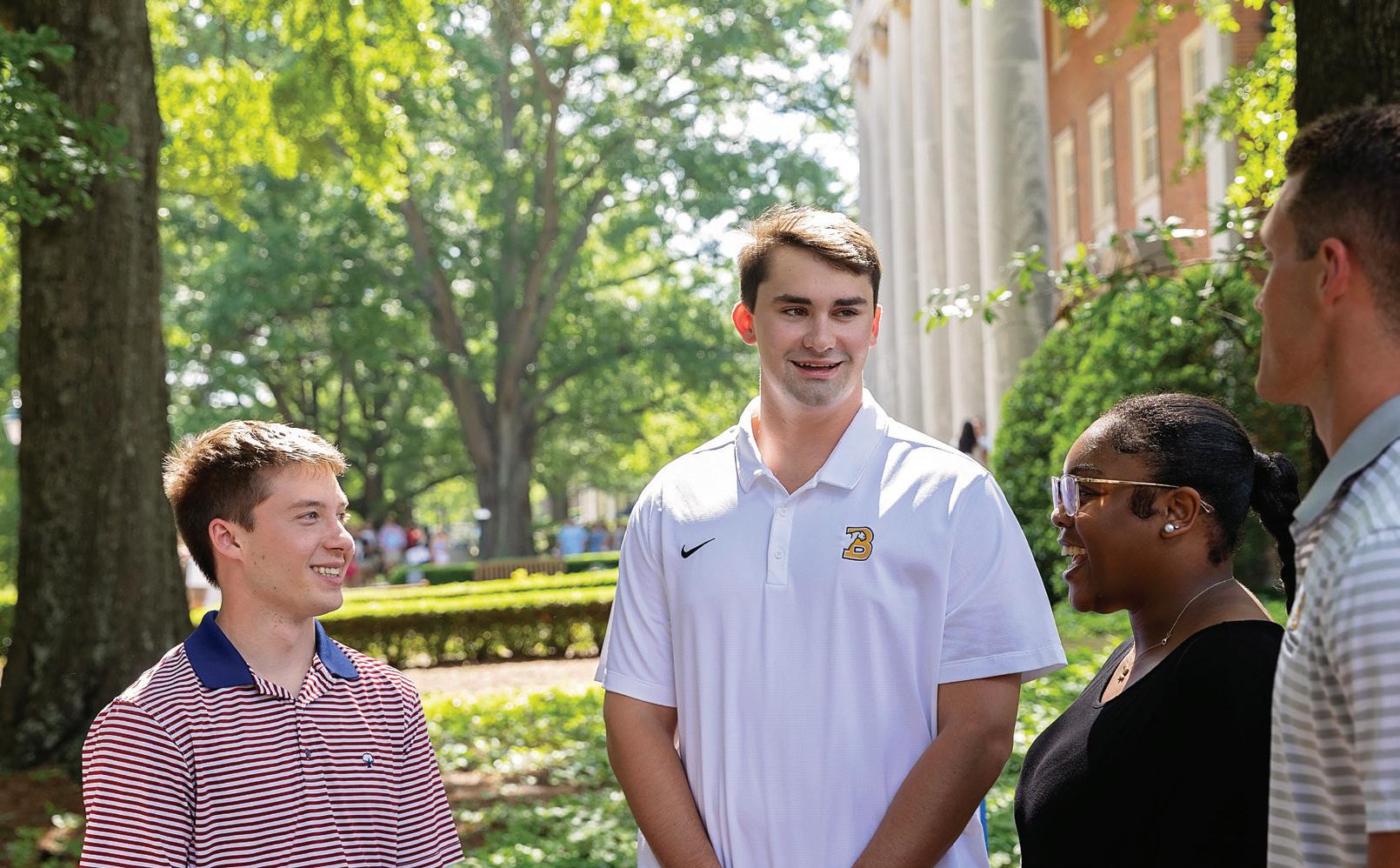
decision. He visited schools that were conference rivals and even received a scholarship offer to continue to play. But ultimately, Strawbridge decided to take a different path, ending his football career to stick with his Birmingham-Southern teammates who decided to transfer to Samford.
“The guys I played with at BSC— they were the reason we had such great times at practice and on those long six- to seven-hour bus rides to games. I didn’t think that for one year I could find that same joy with a new group of guys,” Strawbridge said.
Once he officially enrolled at Samford, Dana Basinger, assistant dean in Howard College of Arts and Sciences, became his academic adviser. That summer, she called to introduce herself and hear more of his story.
“I was instantly impressed with Langston,” Basinger said. “He is a remarkable communicator. In just that
one conversation, he gave me such clear insights into what it was like for him as a transfer student from BSC, a school that he loved and lost. I knew when I hung up the phone that I needed to introduce him to Beck Taylor because I felt he could be a representative voice for all of the students transferring to Samford.”
A few weeks later, Strawbridge found himself in President Taylor’s office, sharing his story and perspective with the university’s leadership team. Taylor asked Strawbridge if he would serve as the president of a BirminghamSouthern student advisory committee.
“I was honored to do it,” Strawbridge said. “The uncertainty coming into our first semester was the toughest part—not knowing how we would start to build relationships, or honestly, if anyone wanted to build them with us.”
Before the start of the academic year, Strawbridge participated in an
orientation session specifically for transfer students, but quickly, it became evident to him that these sessions had room for improvement. “Sometimes the transfer group is underrepresented at Samford,” he said.
This inspired him to create a new student organization: Bulldog Bridge, designed to smooth out the transition experience for all students transferring to Samford. The idea was first developed in a Birmingham-Southern student advisory committee meeting, but Strawbridge said he dedicated his Christmas break to making the idea a reality. In the spring, the organization supported a social event specifically for transfer students and worked to spread awareness at the spring involvement fair. They also officially met to appoint officers and plan for the fall.
“Having this Bulldog Bridge group moving forward will help address concerns and problems for transfer
“I was disappointed that BSC closed, but I'm glad I got to experience Samford. Sometimes tragedy leads to good things.”
LANGSTON STRAWBRIDGE '25
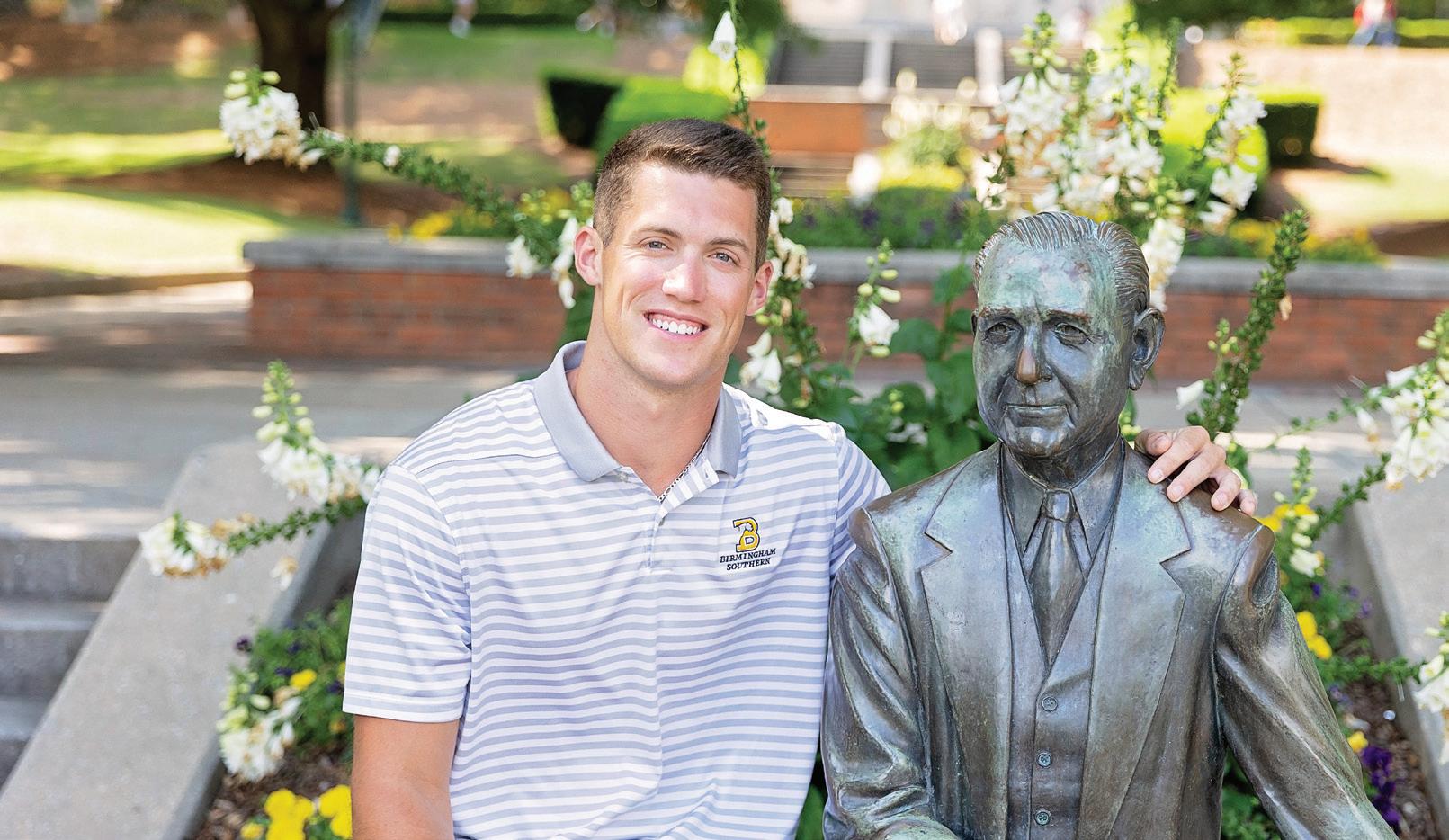
students in general,” Basinger said. “It took having 151 Birmingham-Southern students to bring some of those issues to light.”
Strawbridge expressed excitement about how his experience can help people in the future. “Bulldog Bridge is going to be an extension of orientation— meeting transfers, letting them know what to expect and what dates to circle, helping them make connections. This is our BSC way of leaving our mark, and we’re proud of that,” he said.
To honor Strawbridge and his impact on Samford, President Taylor awarded him the Bell Tower Award at commencement. Traditionally given to alumni and community leaders, Strawbridge was the first graduate to receive the award for his work as a student.
“I was disappointed that BSC closed, but I’m glad I got to experience Samford. Sometimes tragedy leads to good things,” he said.
Nadia Fokken, an international
student from Cape Town, South Africa, said the transition from BirminghamSouthern (with hundreds of students) to Samford (with thousands) “was a little bit of a culture shock.” She admitted that she would often use Google Maps to help her navigate campus.
Entering her senior year, Fokken is assuming a leadership role within Bulldog Bridge. “My hope is it will continue to help transfers find community and be a source of support,” she said.
In addition to Samford’s commencement celebrations this spring, the 63 graduates who transferred from Birmingham-Southern at the beginning of the academic year received the opportunity to return to BirminghamSouthern’s campus one more time. Although campus had been closed for over a year, the beauty of their beloved hilltop remained. As students walked through campus toward the iconic bell
tower, there were many who were in tears.
Each graduate, adorned in a Samford commencement gown with a specially made Birmingham-Southern stole, stepped forward to ring the senior bell, a Birmingham-Southern tradition. The sense of comradery, celebration and excitement was strong.
The cohort of graduates then gathered in front of the bell tower for a group picture, alongside former Birmingham-Southern President Daniel Coleman. Collectively, these new Samford graduates threw their commencement caps in the air while shouting Birmingham-Southern’s motto, “Forward Ever.”
“They’ll remember that moment forever, and so will we,” said Virginia Gilbert Loftin, former BirminghamSouthern vice president for advancement and communication, who coordinated the return to campus. “There is no handbook for closing a college, but if there were, the most important chapter
would be the one on how to take care of your people. We made sure every student had transfer options that could keep them on track academically and financially, and Samford was especially generous in that effort.”
Basinger was also present for the moment. “Graduation is such an important milestone in anybody’s life, and the students really wanted to go back to BSC for that piece of their senior tradition,” she said. “Seeing them crying happy tears, laughing, taking pictures and blending together as if they hadn’t missed a beat, it was a powerful moment.”
J’Maureai “Jay” Raby ’25 recalled how devastated he was when Birmingham-Southern closed. He
served the college through residence life, joined the Black Student Union and pledged Alpha Phi Alpha Fraternity, Inc. “I poured so much into BSC, and then to transfer and not have any of that—with only one year to potentially get involved at a new school—was hard,” he said. “It was so stressful, like the world had just turned upside down. It didn’t feel real.”
At Samford, however, Raby found a new sense of belonging. He even chose Samford to be the place where he proposed to his high school sweetheart. Under the guise of staging graduation photos, he convinced her to walk around the College of Health Sciences and dropped to his knee. “It was amazing,” he said.
Raby said he witnessed resilience
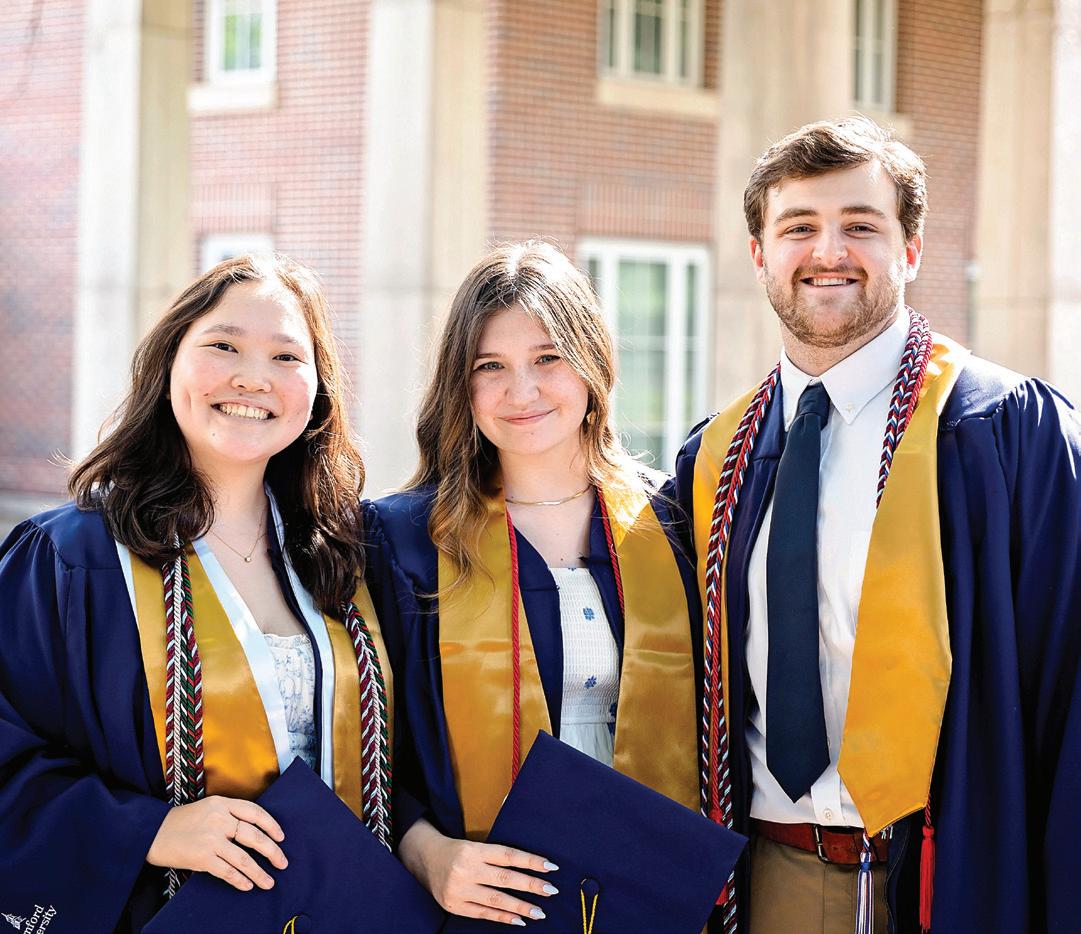
among the Birmingham-Southern students who embraced their time at Samford. “We had something difficult happen to us, but we rolled with the punches because BSC’s mantra is ‘Forward Ever.’ Even though our college closed, we went on to a new opportunity,” he said. “Samford has shown us so much love, and that’s the best you can ask for.”
“We don’t always know why God redirects us, but we know He is present and guiding us,” said President Taylor. “Samford is grateful for the lifelong connections formed with these former BSC students, and we hope graduation brings a sense of fulfillment and renewal.” Forward ever. ◗
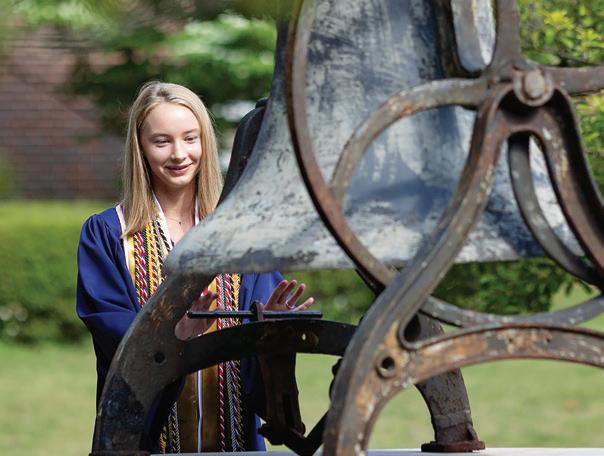
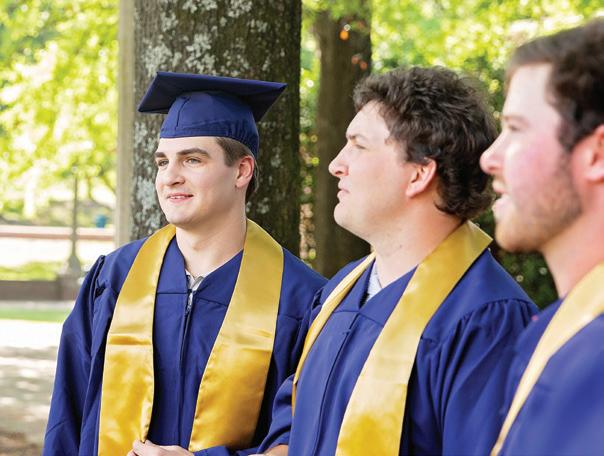
BY ZAC FULLER
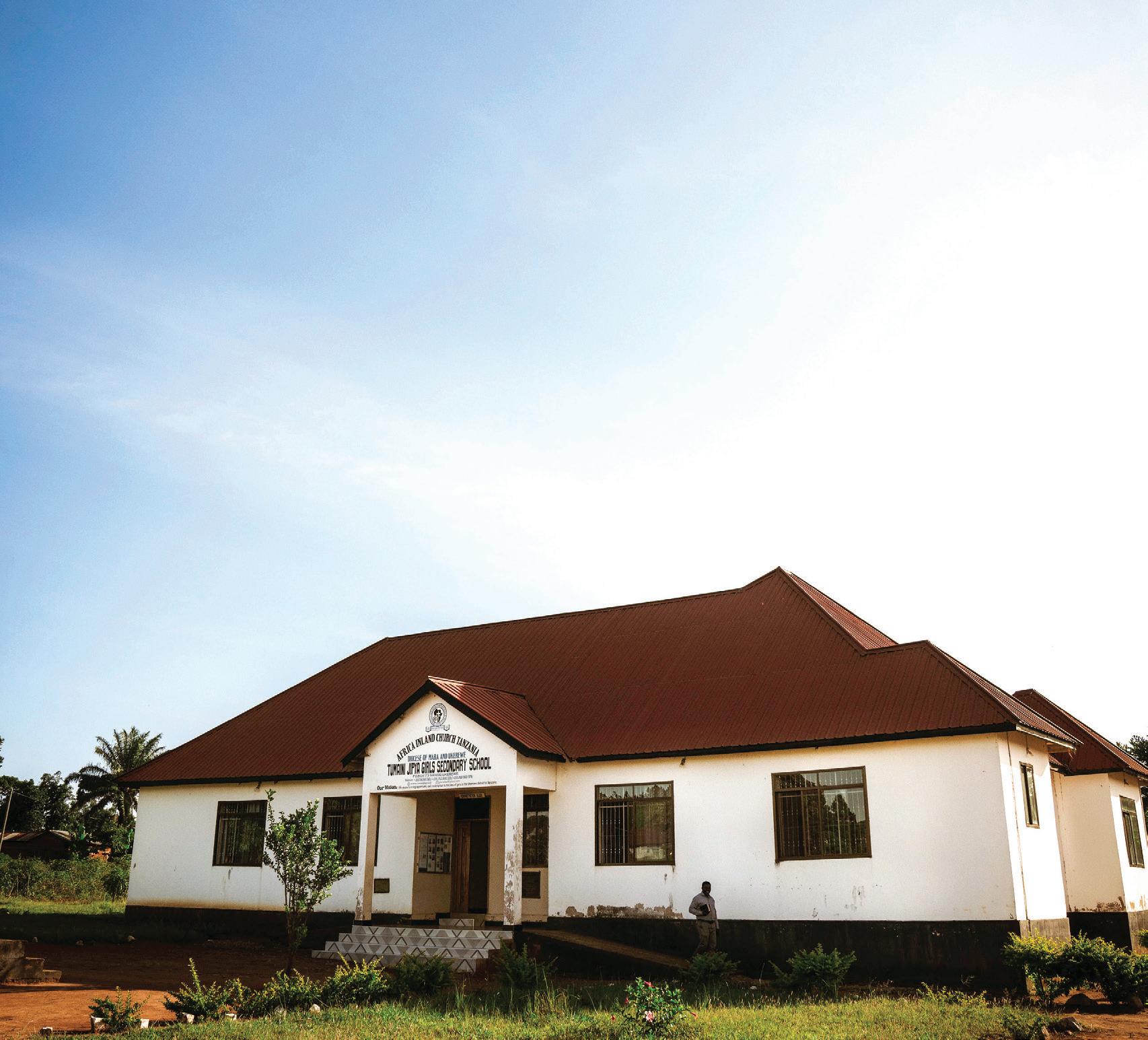
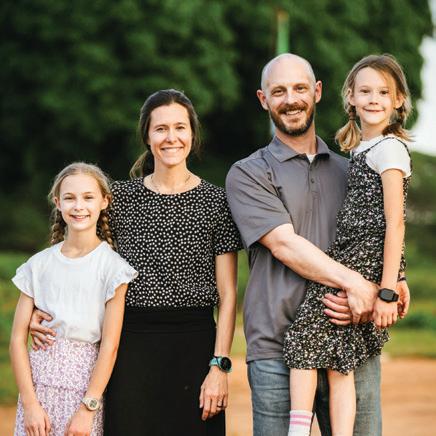
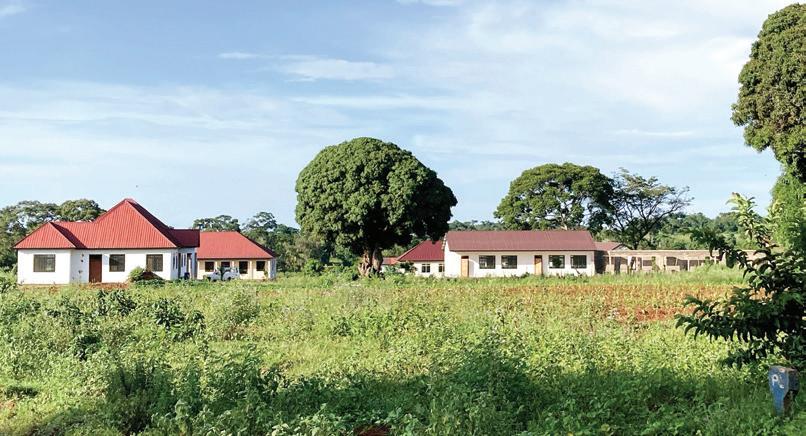


As she walked out onto the porch, Rachel Hagues, a social work professor in Samford’s School of Public Health, felt a blend of nervousness and excitement. Everyone, from the teachers to community members who prayed for this day, shared her emotions. January in Tanzania brings warm, humid mornings; this one was no exception. But there was something different about the start to this day.
For a while, the road was almost silent. Sweat fell from the brow of the facilities manager, making the finishing touches on a squeaky door. The school was ready but missing the most important thing: the students.
Then, just as the first ounce of doubt crept in, they heard it—the hum of motorcycles. The dust kicked up as they rolled onto the grounds. The first girls hopped off the backs of the vehicles, several brought there by their primary school teachers, grinning from ear to ear. This was the opening day of Tumaini Jipya (New Hope) Secondary Girls’ School in Ukerewe, and now that the quiet of a new day had been broken by the chatter of excited students checking in to their dorm, the next chapter of their educational journey could begin.
For Hagues, this January morning was the culmination of nearly two decades of academic expertise, passion and faith. She had planned, researched, fundraised, prayed for and helped build this school, and now the fruit of her labor was on full display—and she couldn’t have been happier.
“I’ve learned so much about the faithfulness of God,” Hagues said. “Every time I go
back to the school and see all of those buildings, I’m just overwhelmed and think that was God.”
Hagues first felt called to work with underprivileged populations internationally as a child, and that calling was confirmed while pursuing her PhD. She attended the University of Georgia, and in 2008, she was invited to a service-learning trip to Ukerewe, an island on Lake Victoria in Tanzania. After three weeks of intense learning and work, Hagues fell in love with the community there. She returned a year later and began to be exposed to the discrimination and exploitation that many young women face in East Africa.
According to Hagues, transactional sexual relations, cultural pressures and legal injustices were all things facing the young women in the country. She recalls being chastised for once allowing her husband to carry a bucket of water back from the community well—a job typically reserved for women in this culture. During her research, she learned that girls would enter into these sexual relations to obtain basic goods like soap, Vaseline and
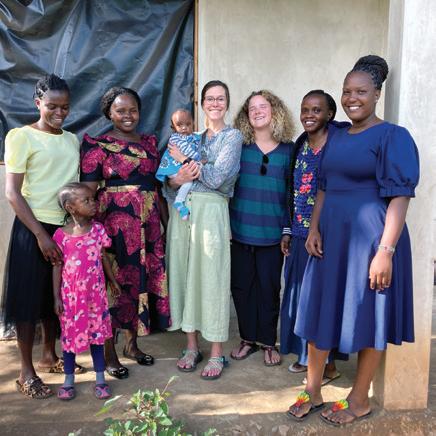
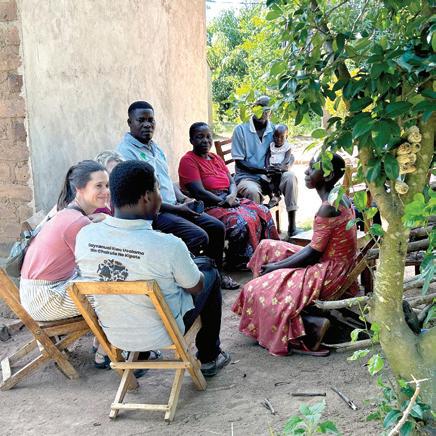
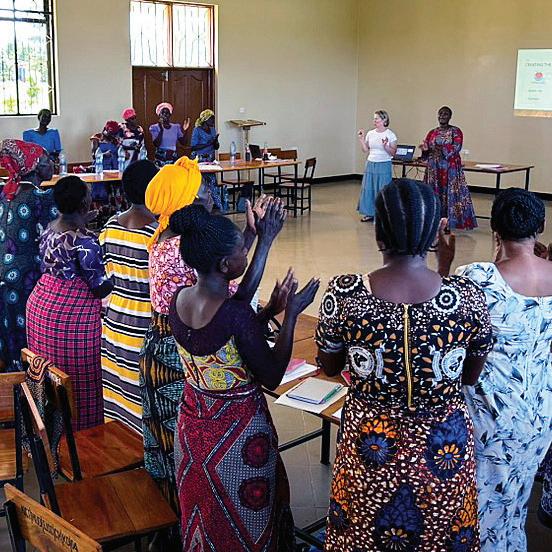

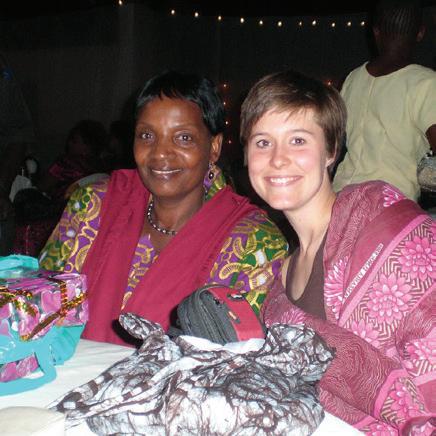
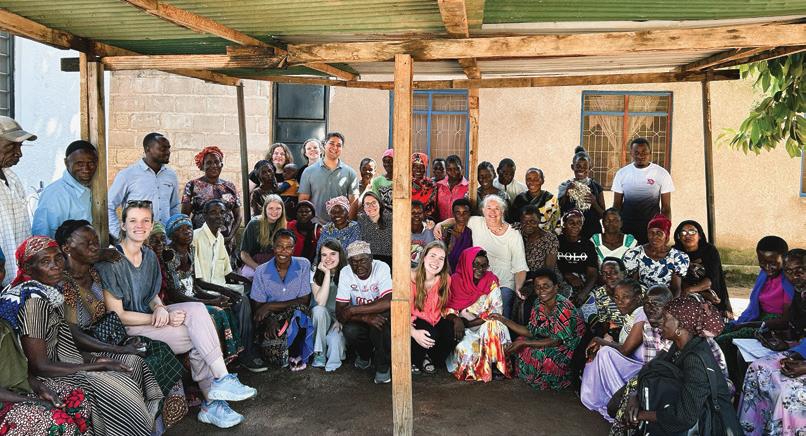
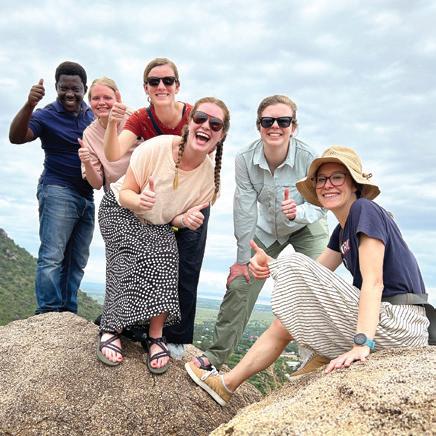
breakfast. The struggles of these girls extended to most areas of life, but education was a particular challenge.
A proverb parroted countless times in Hagues’ visits says, “To educate a girl is like watering your neighbor’s garden.” Taking a daughter to school wasn’t seen as valuable, so many young girls went without education beyond primary school. Over the next few years, after intense Swahili language courses and a six-month stay on the island with her husband, Hagues wrote her dissertation on the educational discrimination she saw. Writing the paper led to long nights praying to God about these girls while their stories ran through her mind. Hagues wrote on, but as she did, a phrase she had heard from local women kept coming back to her: “a boarding school for girls.”
Hagues’ internal reply to the idea was always, “Who’s going to do that? How would that work? That’s just not feasible.” Despite her doubts, she and one of her colleagues from her earlier trips returned to Ukerewe in 2014 to pitch the idea to the local African Inland Church congregation.
Hagues’ research shows that secondary school makes girls less likely to live in poverty, less likely to get pregnant at a young age, and less likely to have health complications due to childbirth. When they presented this data, they were surprised to learn that the community was completely bought in. Leaders from the local church immediately found land to use. Through the support of ROCK International, where Hagues sits on the board, fundraising began to bring this idea to reality.
After nine years of relentless effort with the community and others, Hagues and the Tumaini Jipya teachers welcomed students into the school in January of 2023. Beyond the required academic classes, students take
part in computer lessons, raising chickens, gardening and hygiene courses. For the latter, Hagues initially collaborated with late pharmacy professor Pilar Murphy and several students to help educate the girls on health and hygiene methods. She began bringing Samford students with her before the school was completed, a full-circle moment that reminded her of the service-learning trip that changed her life.
“It was a dream to bring my own students. I knew when I came to Samford in 2015, especially with the emphasis on faith integration, there was no question that I wanted to bring them,” Hagues said.
Groups of Samford students visited Ukerewe in 2018, 2019, 2022 and 2024. They met with African Inland Church leaders to learn about the church’s efforts in the community and had the opportunity to pour into the girls there, playing games and teaching them about their rights and how they are made in God’s image. Hagues has brought other faculty as well. David Parks, director of the Global Center, came in 2019, Karen Flynn, professor of communication sciences and disorders, came in 2022 and 2024, and Jean Roberson, professor of social work, came in January 2025.
On one trip, a local woman invited Hagues and her students to her house, where they were treated to a huge meal covering a long table set for the entire group. This woman was not wealthy, but her impact on the students was invaluable.
“The students love it,” Hagues said. “It shows them that you don’t have to be wealthy to have joy. You don’t have to be wealthy to have generous hospitality.”
She loves how students can see the beauty in how God created people worldwide who speak different
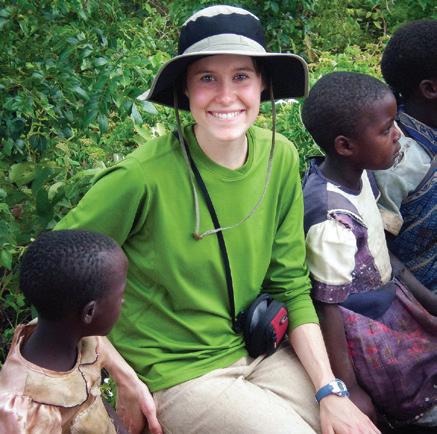
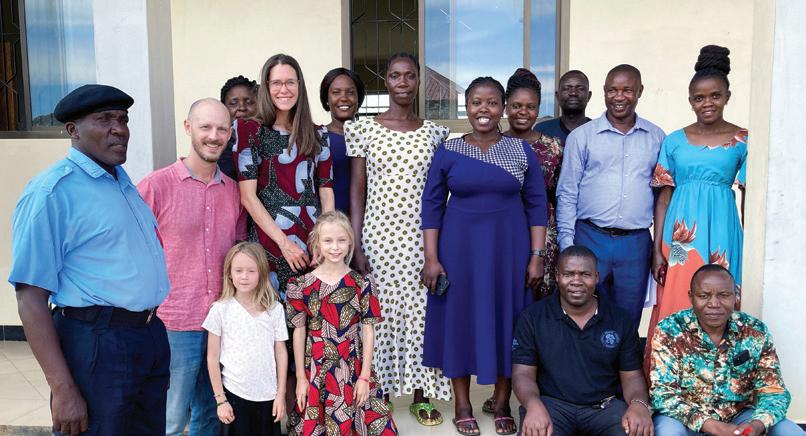
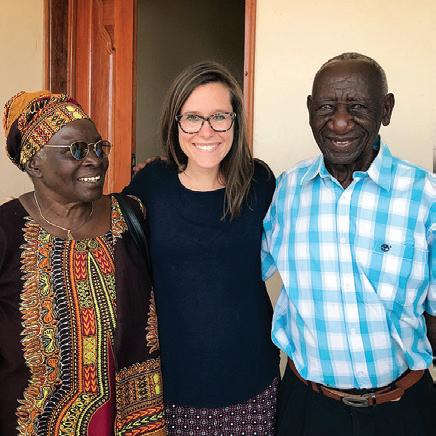
languages and how the barriers between those groups can be broken. They learn “not only the transformative power of education, but the transformative power of the Gospel.”
The impact on Hagues’ faith cannot be overstated. She has been involved with the Kerewe people her entire professional career, and the many chapters of her story have revealed different attributes of God in her walk of faith.
The words of Micah 6:8, “to do justice, and to love kindness, and to walk humbly with your God,” encouraged the work she did early on, bringing these injustices to light. As her work unfolded over the last 17 years, timeless lyrics of hymns like “Great is Thy Faithfulness” remind her that, “Thou changest not, thy compassions, they fail not; As thou hast been, thou forever wilt be.”
Working at Samford, Hagues has had the unique opportunity to excel in her field while keeping Christ at the center of her work.
“As a Christian, I’m strongly convicted to seek justice in the world—because of my faith—on behalf of the oppressed. And as a social worker, I am trained to recognize issues of injustice and to do something about them. That is a part of my calling. I love how they can be combined to do just that,” Hagues said.
Hagues’ vision is to see this school be a light to this community, shining the goodness of God on the girls who walk through the doors. In the future, she hopes to bring more Samford students to assist with and see the new projects in the works. These include a new building for a computer lab, launching sewing classes, fruit and honey harvesting and securing a vehicle for the school.
Whenever she returns, like when she brought a group from her church in May 2025, there is always one thing Hagues can’t wait to hear. Before she walks into the building, it can be heard from the school yard. The girls are singing a song called “What the Lord Has Done for Me.” The girls see the love God poured over them so much that they cannot tell it all; they can only sing about it. Hagues is humbled to see God’s work in the lives of these Tanzanian girls and can’t wait to see His faithfulness continue.
“The Lord has been so kind to let me be a part of this,” Hagues said. “If I had known in 2014 that the school wouldn’t open until 2023, I may have said no and missed out on this awesome opportunity with God. I got to see that He can be trusted, and when He lays something on your heart, you just have to take the next step.” ◗

“I’ve learned so much about the faithfulness of God. Every time I go back to the school and see all of those buildings, I’m just overwhelmed and think that was God.”
RACHEL HAGUES
Douglas McWhorter ’67, ’73, ’78 was awarded a certificate by the Alabama Bar Association at its annual meeting for 50 years of service to the legal profession and the community.
Philip Montante Jr. ’71 received the Albert Nelson Marquis Lifetime Achievement Award by Marquis Who's Who.
Franklin Plummer ’73 received the Liberty Bell Award.
Richard Brown ’76 was appointed chief flight instructor at the Redstone Arsenal Flying Activity on Redstone Army Airfield, Alabama.
Bruce Green ’78 opened a new solo law practice in Fort Myers, Florida.
John Dinan ’81 was appointed co-head of originations at Preston Hollow Community Capital in Dallas, Texas.
Mechelle Wilder ’83 was named as a Top 50 Women Leaders of Alabama for 2024 by Women We Admire.
Lindsey Allison ’84 was re-elected to Shelby County Commission District 7 in Alabama.
Ralph Bishop ’84 was selected to serve on the board of Alabama Children First.
Janet Cobb ’84 was inducted into the Army ROTC Hall of Fame by the U.S. Army Cadet Command.
David Ficken ’86 was named vice president for business development at Alabama Fiber Network.
Bruce Lieberman ’86 was appointed as Montgomery County District Judge, 15th Judicial Circuit.
Chris O’Rear ’87 completed a new book, Therapeutic Friendship: Cultivating Relationships that Heal.
James Ross ’87 received the Sharon G. Lee Award of Excellence at the Annual Tennessee Municipal Court Judges Conference.
Zeke Smith ’88 was announced as chairman of the Alabama Sports Hall of Fame Board of Directors.
Darrell Hill ’91 was appointed to the 20th Judicial Circuit Court in Florida.
Nicole Williams ’91 was selected for Leadership Birmingham 2024-25.
Tracey Morant Adams ’92 was named as a Top 50 Women Leaders of Alabama for 2024 by Women We Admire.
Jamie Brown ’92 was inducted into the NCAA Hall of Fame.
Melissa Gifford Hise ’93 was sworn in as the new Lookout Mountain Judicial Circuit Superior Court judge in Georgia.
Nita Limdi ’93 was named associate dean for genomic medicine at UAB Heersink School of Medicine in Birmingham, Alabama.
Compiled by the Samford Alumni Association. Share your updates via sualumni@samford.edu.
Jeffrey Newton ’93 was appointed commissioner for the Alabama Department of Veteran Affairs.
Paige Petroni ’93 was appointed global president of Fontaine Fifth Wheel Europe.
Walter “Frank” Coppersmith III ’94 was named by Texas Governor Greg Abbott to the state’s Department of Information Resources.
Tom Davis ’95 joined Epiq as chief of staff in Oregon.
Melissa Hamley ’95 was named Teacher of the Year at Hoover High School in Hoover, Alabama.
William “Butch” Motley Jr. ’95 joined SouthState Bank in Auburn, Alabama as a commercial relationship manager.
Julie Alley ’96 was selected for inclusion in Marquis Who's Who
Bo Rivard ’96 joined Rubin Turnbull & Associates’ lobbying team in Florida.
Charity Bryan ’97 was awarded the Donna L. Dunaway Medal from the Southern Tier of the National Academy of Health and Physical Literacy.
Ashley Detwiler ’97 was honored with outstanding performance at Compassus, a home health care company, and was inducted into the company’s President’s Circle.
Chris Duren ’97 joined Gottlieb Law as senior counsel in Phoenix, Arizona.
Richard Gaal ’97 joined Jones Walker LLP as a partner in the Mobile, Alabama office.
Kerry Stevenson ’97 was named Who’s Who in Memphis by Marquis Millennium.
Patrick Flynn ’98 was appointed by Georgia Governor Brian Kemp to serve on the Judicial Nominating Commission.
Lisa Hoffman ’98 co-authored a book, STEM SMART Parenting: A Practical Guide for Nurturing Innovative Thinkers.
Sarah Stimac Japour ’98 was appointed district attorney by Georgia Governor Brian Kemp for the West Georgia Judicial Circuit.
Blake Miller ’98 was named chief operations officer for the city of Hoover, Alabama.
Heather Pinson ’98 was named assistant dean of the College of Health and Human Sciences at Robert Morris University.
Amy Quick Glenos ’99 was elected as shareholder in the Birmingham, Alabama, office of Ogletree Deakins.
Dawn Jones ’99 was promoted to principal at Kassouf CPAs and Advisors.
Daniel “D.J.” Jones ’00 was named as the new general counsel of The University of New Mexico.
Jason Kittinger ’00 was named group chief operating officer for Fidelis Insurance Group in London, England.
Bud Miller ’00 was named owner and president of Business Interiors, a Birmingham-based company that specializes in office furniture.
For Frank Buck, JD ’75, it was the encouragement of his friend and fellow alumnus Ron Mims ’70, that inspired him to support Samford Athletics and the men’s basketball program. “I had supported Cumberland School of Law over the years, but it was not until I got behind men’s basketball that I really got more engaged at Samford,” he said.
Frank and his wife Marti, who recently celebrated their 50th wedding anniversary, met at Samford in 1974. Frank was in law school, and Marti was studying nursing. It was at a Samford basketball game that Marti caught Frank’s eye.
Decades later, the Bucks are some of Samford basketball’s biggest supporters. They began supporting the program in 2017, and their support has increased each year—coinciding with the rise of the program in the Southern Conference. Today, it has become a family affair with their children and grandchildren attending games too.
“The Bucks’ long-term investment in our men’s basketball team has been transformational and provides a strong foundation for excellence for years to come,” said Doug Kovash, director of development for Samford Athletics.
Recently the Bucks made a significant gift to the university extending their support beyond athletics and the law school, establishing the Marti and Kerri Buck Scholarship in Moffett & Sanders School of Nursing and providing critical funding for university initiatives.
“Samford provided me with a tremendous opportunity, a
Jason Smith ’00 was elected district attorney in New Hanover and Pender counties in North Carolina.
Jeremy Smalley ’01 was appointed pastor at Eastern Hills Baptist Church in Montgomery, Alabama.
Lyord Watson ’01, ’10 was recognized with the Giving Circle Award, presented during the CIN Honors at the 2024 Community Investment Network Conference in Birmingham, Alabama.
Cyrus Zomorodian ’01 was appointed to serve on the St. Johns River State College District Board of Trustees by Florida Governor Ron DeSantis.
Emory Mauldin ’02 was selected for Leadership Birmingham 2024-25.
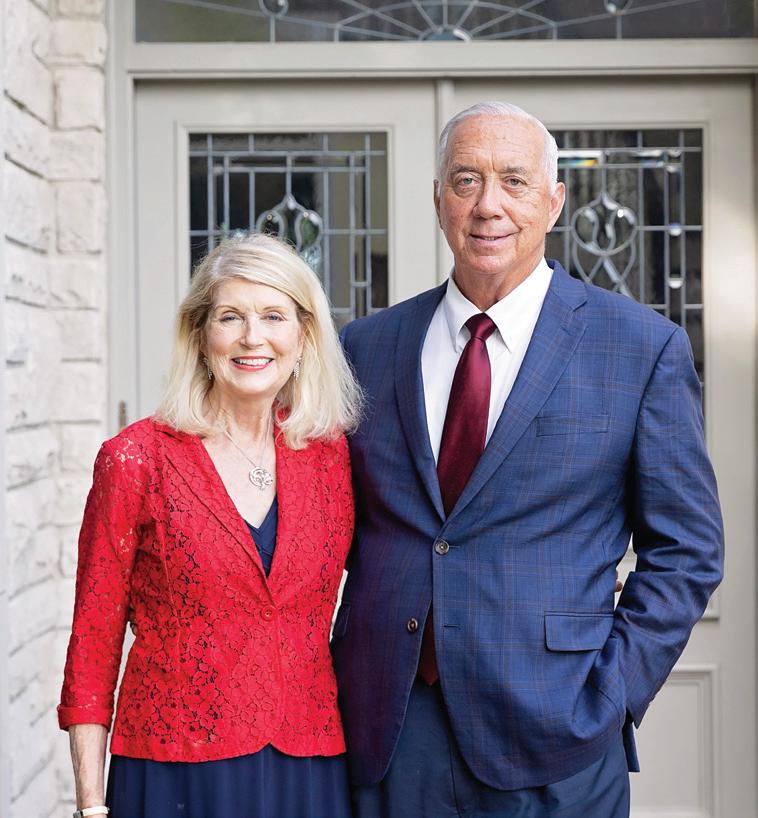
great education. It is where I met my wife, and it prepared me for a successful law career,” Frank said. “The university has been very good to me, and fortunately, I am in a position to help the school.”
This fall, Samford will recognize Frank and Marti for their philanthropic support with the naming of the Frank and Marti Buck Plaza. The new plaza will be located south of the new freshmen residence halls, creating a wonderful outdoor space for the Samford community. ◗
Joshua “Caleb” Ross ’02 joined the Alabama High School Athletic Association as an assistant director.
Robert “Bucky” Thomas ’02 was appointed to the position of Municipal Court judge in Saraland, Alabama.
Brock Eson ’03 was selected for a strategic advisory board with DPL Financial Partners in Birmingham, Alabama.
Tracy Smith ’03 was appointed to a judgeship in Bay County, Florida.
Kevin Barberio ’04 was promoted to U.S. national sales director at ABANZA, LLC. in St. Augustine, Florida.
Ross Newton ’04 was named head football coach at Pelham High School in Pelham, Alabama.
April Dean ’05 was honored as Cullman City Schools 2024 Teacher of the Year at East Elementary School in Cullman, Alabama.
Court ney Worley ’05 joined Upward Behavioral Health in Vestavia Hills, Alabama.
Lindsey Harris ’06 was selected for Leadership Birmingham 2024-25.
Adam Hancock ’07 was named in the Leadership Initiative Class for 2024-25 with Leadership Alabama.
Monica Green Whiting ’07 was chosen to serve on the Federal Home Loan Bank of Atlanta’s Affordable Housing Advisory Council.
Allyson Bretch ’09 was promoted to vice president for university advancement and chief executive
officer of philanthropic foundations at the University of West Georgia.
Lisha Graham ’09 was named in the Birmingham Business Journal’s Top 40 Under 40 for 2025.
Emily Hart ’10 established a new fintech startup, Occupi, in Birmingham, Alabama.
Joshua Hornady ’10 joined Occupi as chief legal officer officer in Birmingham, Alabama.
Jonathan Moody ’10 was named e-discovery sales vice president for JND Legal Administration in Birmingham, Alabama.
Staci Pierce ’10 was elected as director of First U.S. Bancshares, Inc. and its subsidiary, First U.S. Bank.

BY ALLAN TAYLOR
Megan Dowdy Curry '16, the Samford hall-of-fame centerfielder turned Samford first-year softball coach, counts enough blessings to fill a scorebook.
She’s thankful for the 2012 recruiting trip that first brought her to Homewood. Samford’s idyllic campus made an impression on the teenager, but its softball stadium was merely a sketch, a proposal. Curry signed on anyway, believing the vision of what could be constructed, literally and metaphorically, though her freshman season at Samford was not a success. The Bulldogs played home games at a nearby high school, posted a 17-35 record, and finished last in the Southern Conference.
Curry is thankful for that abrupt dose of losing, or at least, the resilience it fostered. She and her teammates vowed after that season that it wouldn’t happen again.
She’s thankful for the turnaround that ensued: 111 wins over three years, the best stretch in program history. It culminated with a 40-win outburst in 2016—what
remains Samford’s lone NCAA regional berth—and Curry claiming SoCon player of the year.
She’s thankful for another gift that spring. Parker Curry ’16, a former Samford baseball pitcher who had been practicing in the same indoor facility for four years, became her boyfriend. As the relationship turned serious, they questioned the plausibility of staying together after graduation. She was remaining at Samford as an assistant; he was heading off to pursue his baseball dreams in the Dodgers’ farm system. Could they make it work?
The doubts, she recalls, “that was just us putting God in a box and saying, ‘You can't do this.’ In reality, He had this perfect plan.”
That plan ultimately revealed a longdistance marriage, with Parker coursing the minor leagues for six years—often three time zones away.
Curry is thankful for the season she spent coaching at Birmingham-Southern, where a roster of only 12 players reached
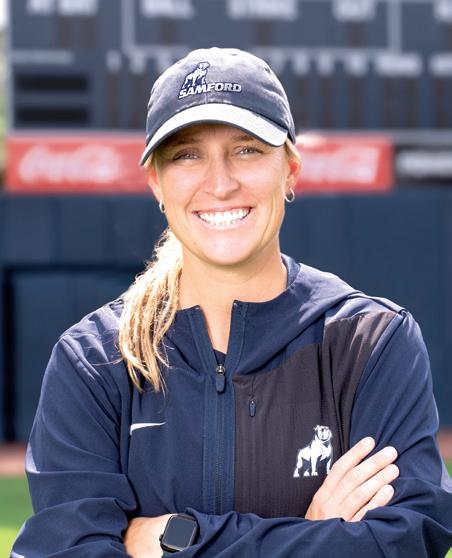
the conference final despite their college preparing to shut down.
She’s thankful for the call from Martin Newton, Samford's director of athletics, yielding an offer to lead her alma mater’s softball program. The Bulldogs recently wrapped up Curry’s first season at 33-23, only their second winning record in nine years since the NCAA berth. Zero players entered the transfer portal.
Curry is thankful that at age 31, she has her team climbing and her family close: Parker is on the baseball staff at UAB, their 3-year-old daughter is a fixture at the field, and grandparents cheer in the stands.
“Parker and I know we're called to do what we do, even if we don't see each other in the spring much,” she said. “It's a good testimony. God’s perfect plan was not only putting us in the same city, but in our home city, near family. It's a perfect situation.”
Alan Taylor ’10 was named president of the board of directors for the Glen Ellyn Children’s Resource Center in Glen Ellyn, Illinois.
DeMarcus Covington ’11 was hired as the defensive line/run game coordinator for the Green Bay Packers.
Edward Hobbs ’11 was named in the Birmingham Business Journal’s Top 40 Under 40 for 2025.
Brett Thompson ’11 was announced as principal attorney at Cory Watson Attorneys in Birmingham, Alabama.
Winston Busby ’12 was elected as a fellow to the American College of Trust and Estate Counsel.
Carol Griggs ’12 was named chief of staff and associate dean for strategy and innovation in the dean’s office at UW-Madison’s School of Education in Madison, Wisconsin.
Bethany Webb Broderick ’13 wrote her first book, Perfected: Trading Shame and Striving for Wholeness in Christ.
Hilaire R. Armstrong ’12, ’16 was named in the Birmingham Business Journal’s Top 40 Under 40 for 2025.
Ashley Burt ’13 was named in Mobile Bay’s 2025 Class of 40 Under 40.
Justin Shade ’14 was named in Mobile Bay’s 2025 Class of 40 Under 40.
Howard “Frankie” Wallis ’14 received the Outstanding Nursing Administrator Award at UAB Medicine in Birmingham, Alabama.
Daniel Yarbrough ’14 became legislative director on the staff of Pete Ricketts, U.S. Senator for Nebraska.
Simara Sokom ’15 was named in Mobile Bay’s 2025 Class of 40 Under 40.
Chase Traffica ’15 was named by the Alabama Associated General Contractors as AGC’s 40 Under 40 in 2024.
BY NEAL EMBRY
Following years of playing the trumpet in high school and college, Matt Burford, MDiv ’07, DMin ’16, began playing taps on the bugle at veterans’ funeral services. Although Burford, an adjunct professor for Samford’s core texts program, doesn’t have a military background, he has a deep appreciation for veterans. Both of his grandfathers served in World War II, and growing up close to Fort McClellan, near Anniston, Alabama, many of his friends came from military families.
Along the way, Burford came across the organization, Buglers Across America, which works to connect families to buglers for playing taps at military funerals. While it’s possible to use a recorded version of taps that plays from a device placed inside a bugle, it’s not ideal. “It’s almost too pitch perfect,” Burford said. “It almost doesn’t seem real. Live, real time, incarnational playing is better.”
While this meaningful act of honor is highly sought after by loved ones of military
veterans, the number of available buglers has dwindled over the years. “It’s hard to get full accompaniment to most funerals,” Burford said. “In the past, the organization had 85 to 90 buglers, but now there are fewer than 20.”
Recognizing that there are many trumpet players in Alabama high school and college bands, Burford was inspired to establish a partner organization, Real Taps for Real Heros, to raise awareness of the need of buglers and to connect them to families in need.
“Real Taps for Real Heroes stands besides Buglers Across America. We want to bring more young people into the organization, possibly making it an excused absence from school for students who are interested in serving,” he said.
While Buglers Across America has given him amazing opportunities—like playing at the American cemeteries in Normandy and Brittany, France—Burford said the real joy is serving military families
Lindsey Cochran ’16 was named in the Leadership Initiative Class for 2024-25 with Leadership Alabama.
Bernadette Beavers Forrest ’16, ’17 was selected as second vice president in charge of membership for the Hoover Service Club.
Mark Kilgore ’16 was promoted to shareholder at Patterson Intellectual Property Law, P.C. in Nashville, Tennessee
Terry Lamar ’16 was appointed chief of staff for Birmingham City Schools.
Catherine Reaves ’16 was named in the Leadership Initiative Class for 2024-25 with Leadership Alabama.
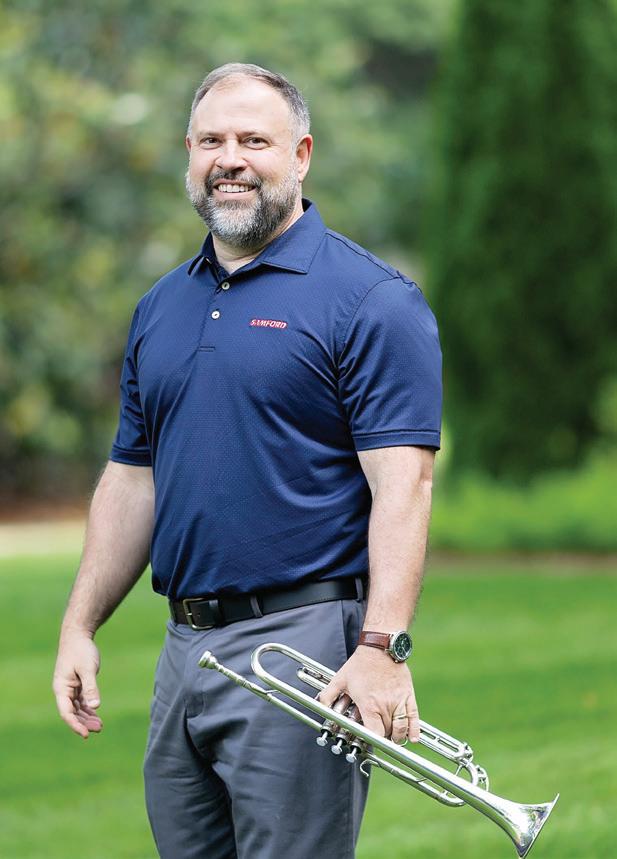
at home. “It pales in comparison to playing taps in a rural setting in Alabama for a military family.”
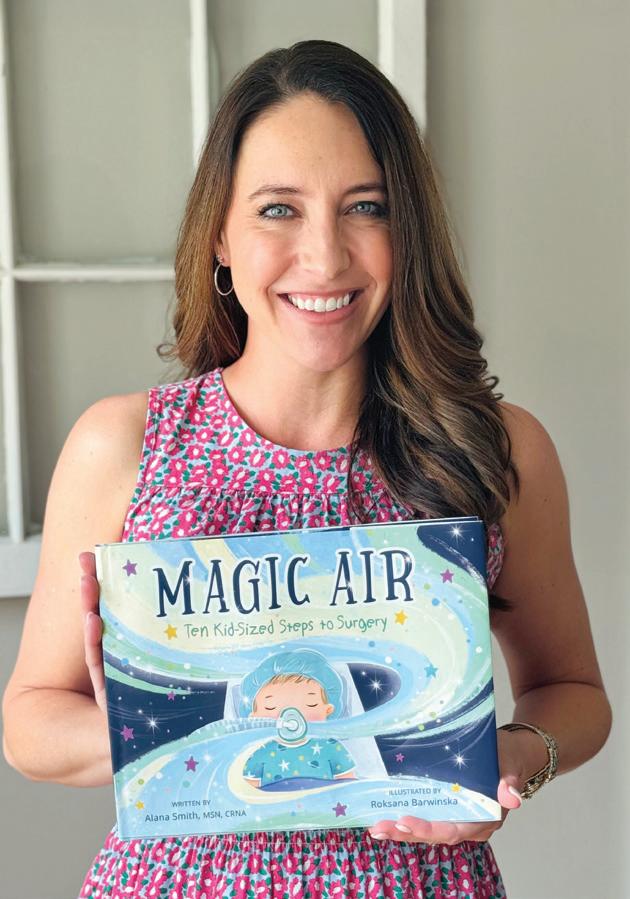
BY MEGAN WINKLER
Alana Smith, MSN ’13, a graduate from Moffett & Sanders School of Nursing, combined her nurse anesthesia training and experience as a mother to publish Magic Air, a children’s book designed to help kids prepare for surgery.
“I realized there were no books about nurse anesthetists that adequately prepared kids for surgery,” Smith said. “I took what I did for a living in nurse anesthesia and set out to publish a children’s book.”
Surgery can be scary for children, but books help make complex topics easier to understand. Magic Air guides young readers through the surgical process from the perspective of a child whose sibling is preparing for surgery. It covers everything from meeting the care team to breathing the magic air.
“Nurse anesthetists have embraced Magic Air beyond my expectations,” Smith said. “In many pediatric settings, the term ‘magic air’ now refers to our anesthesia gas.”
Magic Air is used in hospital pre-op areas and clinics across the country. Smith’s decision to write the book reflects the legacy of Ida V. Moffett, one of the school's namesakes, who encouraged students to have the courage to care.
“For me, courage to care means going beyond standard steps and focusing on emotional health, support systems, and the whole picture,” Smith said. ◗
Nathan Yoguez ’16 joined Beth Israel Deaconess Medical Center as a senior clinical research coordinator in Boston, Massachusetts.
Lindsay Birchfield ’17 officially joined BCR Wealth Strategies, LLC as a member for 2025 in Vestavia, Alabama.
Will Cross ’17 received the Emerging Leader Award for the Franklin Tomorrow’s 18th Annual Volunteer Awards in Williamson County, Tennessee.
Dulce Rivera ’17 was selected for Leadership Birmingham 2024-25.
Will Thompson ’17 was promoted to partner at Huie, Fernambucq & Stewart, LLP.
Kerry Pate-Davison ’18 was promoted to executive director of human resources for secondary schools with Hoover City Schools.
Kristin Harrell ’18 was named the new executive director of federal programs and testing for Hoover City Schools in Hoover, Alabama.
Alex Peters ’18 was promoted to partner at ON Partners in Atlanta, Georgia.
Kirtland Roach ’18 was honored with the Mobley Award from the University of Kentucky for her outstanding performance in support of philanthropic efforts at the university.
Carmen Weite ’18 was elected as secretary-treasurer of the Young Lawyers Section of the Birmingham Bar Association.
Anna Catherine Roberson ’19 was named as a new board member for the Shelby County Chamber.
Marie Feagins ’20 was named Who’s Who in Memphis by Memphis Magazine.
Angel Sims ’20 joined Starnes Davis Florie LLP as an associate.
Sheryl “Sheri” Biggs ’21 won her first political campaign to become representative for South Carolina’s third congressional district.
Bailee Curtis ’22 joined McGlinchey Stafford as litigation associate in Birmingham, Alabama.
Pierce Ostwalt ’22 was appointed as a law clerk by the Supreme Court of Georgia.
Jacob Tryon ’22 was recruited to play basketball for the Froya Basket Laksevag in Norway.
Michael Hiers ’23 signed to play football for the Saskatchewan Roughriders Football Club in Canada.
Micaiah Collins ’24 was named Teacher of the Year at Ramsay High School in Birmingham, Alabama.
Kalen Early ’24 joined Starnes Davis Florie LLP as an associate.
Jeffrey Stevens ’24 joined Atracare as a board-certified psychiatric mental health nurse practitioner in in Lewes, Deleware.
Dylan Lee ’24 was named membership pastor at Grace Life Baptist Church in McCalla, Alabama.
Caroline Lunsford ’24 was honored as Cullman City Schools 2024 Teacher of the Year at Cullman High School.
BY CATHERINE SMITH
Attending the Super Bowl is a dream for many, but for Titus Gardner ’22, it became part of his career. As a marketing specialist at FedEx, he uses his creative skills to engage audiences and highlight the company’s role at major events including the Super Bowl. During Super Bowl LIX in New Orleans, Gardner traveled with the iconic Lombardi Trophy, capturing the moment for FedEx’s social media channels as part of the brand’s 25-year partnership with the NFL.
As a part of the global social media team, Gardner creates content and appears on camera, spotlighting FedEx’s involvement in events like the PGA Tour and UEFA Champions League. His work helps humanize the brand, showcasing its impact far beyond package delivery.
“I love collaborating with an amazing team and traveling to events where FedEx is involved,” Gardner said. “It’s taken me to places like Alaska, New Orleans and Indianapolis.”

A former Samford football player, Gardner also had the chance to reconnect with two former teammates— Montrell Washington ’21 and Chris Oladokun ’20— both with the Kansas City Chiefs at the time.
Gardner credits his experience at Samford’s Brock School of Business with preparing him for his career, especially courses like social media marketing, which sparked his passion for digital engagement. His success reflects the value of Samford’s hands-on learning environment and its national ranking of #8 in the U.S. for career preparation by The Wall Street Journal. ◗
BY GUNNAR SADOWEY
For Connors Landwehr, MSEM '24, Samford’s Master of Science in Environmental Health, Policy and Management provided more than a degree—it opened doors.
Landwehr works in Huntsville as an environmental analyst with Honda Manufacturing of Alabama. His role combines technical expertise and sustainability planning, a natural extension of the skills he developed during the graduate program. “I chose the MSEM program for its interdisciplinary curriculum,” Landwehr said. “It helped me deepen my understanding of environmental risk, regulatory compliance and sustainability in an organizational setting. The faculty’s broad experience also gave me valuable insight into the field.”
Before enrolling at Samford, Landwehr had a background in biology but wanted to pair that with applied environmental skills. The program’s interdisciplinary approach helped him think strategically about environmental impact in large-scale operations.
“The program gave me the tools to navigate complex environmental challenges in the fast-paced automotive industry,” Landwehr said. “I use what I learned every day—from regulatory
knowledge to project management—to find sustainable solutions and improve operations.”
Landwehr says the MSEM’s focus on regulatory frameworks, risk assessment and sustainable development gave him a strong foundation for his current role. He’s also grateful for the mentorship of faculty who encouraged his professional growth.
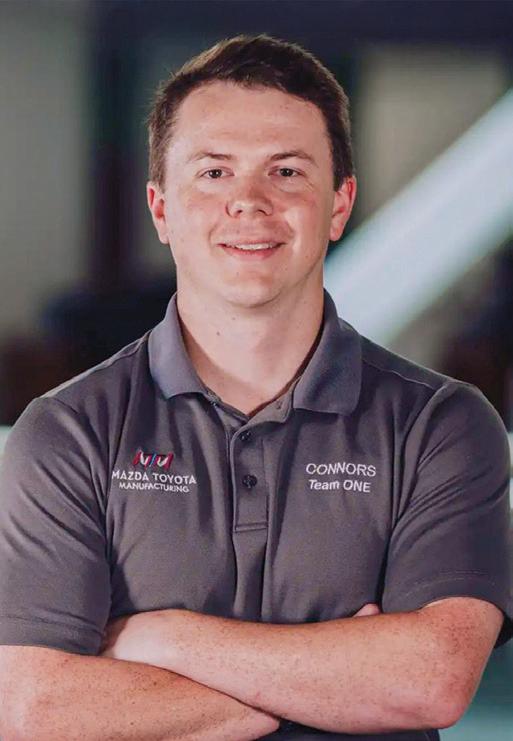
As Samford continues to shape leaders in science and sustainability, stories like Landwehr’s illustrate how its graduate programs can power meaningful careers.
David Hobson ’05 and Lauren Hobson welcomed a daughter, Elizabeth Blair. 1
Marlene Mann Cox ’06 and Jonathan Cox ’07 welcomed a daughter, Elnora Abigail. 2
Ashley English-McCleery ’07 and Bob English-McCleery welcomed a daughter, Maisie Grey. 3
Jordan Simpkins ’07 and Elizabeth Simpkins welcomed a son, Joseph Michael. 4
Rebecca Mayhall Higdon ’09 and Doug Higdon welcomed a daughter, Evangeline Ruth. 5
Paul Sloderbeck ’09 and Sarah Sloderbeck welcomed a son, Paul Ferguson “Gus.” 6
Josh Moore ’11 and Catherine Moore welcomed a son, Samuel Robert. 7
Jude Thompson ’11 and Paige Thompson welcomed a son, Porter Tate.
Aundrea Olszewski Phillips ’12, ’13 and Chad Phillips welcomed a daughter, Ellie James. 8
Mariah Cook Oliver ’13, ’14 and Thomas Oliver ’12 welcomed a daughter, Sarah Ruth. 9
Kelly Prater Colón ’13 and Juan Colón welcomed a daughter, Gloria Grace. 10
Melissa Jeffcoat Denning ’14 and Daniel Denning ’14 welcomed a daughter, Aubrey Nicole. 11
Bailey Boyer Henderson ’14, ’16 and Drew Henderson welcomed a son, Davis. 12
Jane Eggenberger Herald ’14, ’16 and Chase Herald welcomed a son, Nathan “Luke.” 13
Katie Sims Williams ’14 and Austin Williams welcomed a daughter, Sylvia Joy. 14
Claire Graff Dillard ’15 and Drew Dillard welcomed a daughter, Mabry James. 15
Anna Bethea Owenby ’15 and Caleb Owenby welcomed a daughter, Eliza Jane. 16














Mary Beth Carlisle Bush ’16 and Matt Bush welcomed a son, Robert Carlisle.

Haley Shaw Miller ’16, ’17 and Jared Miller ’15 welcomed a son, Peterson Lawrence.
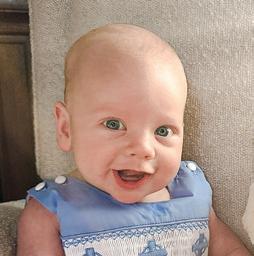

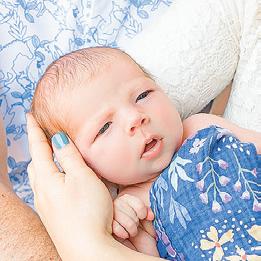
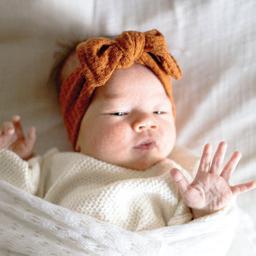






Natalie Marshall Millican ’17 and Parker Millican ’18 welcomed a daughter, Ruth Madison. 18
Caroline Johnson Chong ’18, ’24 and Marn Chong ’18 welcomed a daughter, Phoebe Anne. 19
Ben Keen ’18 and Sarah Keen welcomed a son, Hudson Randall.
Hailee Underhill Park ’18 and Nelson Park ’18 welcomed a daughter, Lainey Jo. 20
Lydia Johnson Vinar ’18 and Kendrick Vinar Jr. welcomed a son, Kendrick James III. 21
Meg Alford Donovan ’19 and Robert Donovan ’19 welcomed daughters, Ann Margaret and Helen Waterson. 22
Alex Goode Waddell ’19 and Cass Waddell ’18 welcomed a daughter, Margot Cass. 23
April Rudolph Rodgers ’19, ’21 and Zachary Rodgers welcomed a daughter, Hattie Elizabeth. 24
Ben Gravlee ’23 and Jill Gravlee welcomed a son, Benjamin Joseph. 25
’45 Juanita Searcy
’49 Charles Henry Baugh Sr.
’50 Charles Moore
’52, ’65 John Paul DeCarlo
’55 Emily Jo Allen Colvin
’55 Sara Zoe Ables Noles
’56 Bertha Brown Farrar
’56 Howard Tillman Plott
’56 Sherry Joann Prichard
’57 Thomas Therrell Banks
’57 Ann Webb Carns
’57 Robert Elwood Sims
’57 Glenn Evan Slye
’59 David Glennis Askins Sr.
’59 Donald Theodore Johnson
’59 Andrew “Leslie” Kenney Jr. ’59, ’83 Sue Ann Morrison
’60 Robert Wiley Bradley
’61 Helen Culp Holcomb
’61 Frank William “Bill” Kelley
’61 Marie Horn Smith
’62 Barbara Whatley Crider
’62 Glynda Frances Hagler Franklin
’62 Charles H. Harwell
’62 Jean Peacock Myrick
’62 Billie Beasley Winstead
’63 Judith “Judy” Kaye Middleton Case
’63 Linda Kay Clements
’63 Alice Elizabeth Evans
’63 Mickey “Mike” Van Moses
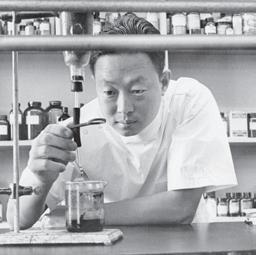
Tea Sam Roe '65, MBA '67, a beloved pharmacy professor, died in December, leaving behind an incredible legacy that spanned 43 years. Born in Seoul, South Korea, Roe’s journey to Samford was anything but conventional. His early years were spent in a Buddhist monastery, where he developed discipline and a sharp intellect over 12 years.
After earning his PhD from Seoul National University, Roe’s path took him from the Korean Air Force to the U.S. Air Force, where he rose to the rank of colonel—an experience that shaped his leadership and commitment to service. Joining Samford in 1964 as an instructor, Roe soon became a pillar of the pharmacy program. He introduced groundbreaking initiatives, including the first curriculum in nursing home pharmacy and herbal medicine. Roe’s teaching went beyond textbooks—he inspired generations of students to push boundaries and think critically. Roe’s legacy is preserved through the Tea Sam Roe Pharmacy Fund, an endowed scholarship established in his honor in 2007.
’64 Emogene Austin
’64 William Thomas "Tom" Espy
’64 Donald Clyde Lenz
’64 John Charles Norman
’64 Eleanor Yarborough
’64 Melvyn Salter
’65 James Robert Chasteen
’65, ’67 Tea Sam Roe
’66 David Kelly Livingston
’66 Yale Isaacson Rogers
’66 Wells Rutland Turner Jr.
’67 John L. Hopkins Sr.
’67, ’72 Stan Thornton
’67, ’69 Johnny Norton
’68 Martha “Suzi” Gresham Mullins
’68 Beverly Belcher Scroggins
’69 John Ausenbaugh Jr.
’69, ’70 Glenn Grady Majors
’70 Linda Jo Smith
’70, ’74 Charles Taylor Sr.
’70 Paul Jackson Tillison
’71 Jimmy Ray Bell
’71 Dyer Carlisle III
’71 Gilbert Carpenter
’71 John Patrick Cooney
’71 Clyde J. “Sonny” Smart
’71 Eva Rebecca “Becky” Lucas
’72, ’75 James “Jimmy” Lancaster Jr.
’73 Curtis Wilson Gordon Jr.
’73 William Mackey
’73 James “Jim” Harry Waldrop
’74 Demetra “Jane” Nakos Mitchell
’74 Grant Allen Paris
’74 Celeste Marie Gonzales Pevahouse
’75 Walter Ronald “Ronny” Hill
’75 Sidney “Sid” W. Nichols
’75 James R. Sampley
’75
Glenda Tucker
’76 Joseph Como
’76 Harvey Rex Hammock
’76 Anthony Andrew Jackson
’77, ’80 John Gioiello
’78 Stella Gamble
’78 Steven Earl Ripstra
’79 Adrian Clark Fletcher Jr.
’79, ’82 Kenneth “Ken” Dewayne Hampton
’79 Roger Kelly
’79 Amy Sue Meredith
’80 Hester Guy Able Jr.
’80 William “Bill” Graves McDowell Jr.
’80 Guy Dennis Nabors
’80 Christopher Miller
’81 Mary Patricia Thornton Taylor
’81 James “Jim” Edward Vann
’82 Philip Michael Boyles
’82 Thomas “Tom” Jeffrey MacQueen
’83 Allyson Loraine Young George
’84 Frank Ray Keasler Jr.
’84 Anne Elizabeth Stowe
’84 Douglas Orvle Wood
’85 Michael Stacy
’87 Esther Marie Bain
’90, ’92 Mary Gray
’90 Sami Badie Naddy
’90 Andrew Preston Wolverton
’92 Alan Lyndale Schooley
’93 Paula Hunt Hughes
’96 Michael Brad Heifner
’97 Joshua Layne Reidinger
’98 Holly Stubblefield Powell
’01 Andrew Stewart
’05 Frelon "Trey" Abbott III
’10 Robert Lawton Goethe
’17 Bryan Scott Bashrum
’20, ’22 Robyn Sanchez Best
’21, ’23 Lauren Ann Holbrook
Lee Norcross Allen worked at Samford for 40 years, first joining the faculty as a professor of history in 1961. He became the founding dean of the School of Graduate Studies in 1965 and then dean of Howard College of Arts and Sciences from 1975 to 1990.
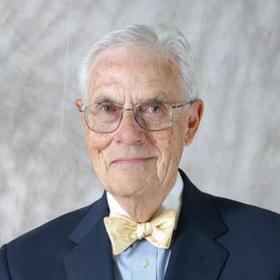
A prolific writer and historian, Allen was dedicated to preserving Baptist and Alabama history. From 1990 to 2001, he served as university historian, authoring numerous books, including College to University: Samford on Lakeshore and Courage to Care: The Story of Ida V. Moffett. He also created an extensive archive of Samford history now housed in the university’s Special Collections. His legacy of scholarship, service and leadership will endure through generations of students and colleagues. Allen died in December at the age of 98.
REMARKABLE GIFT REFLECTS A LEGACY OF FAITHFULNESS
BY ZAC FULLER
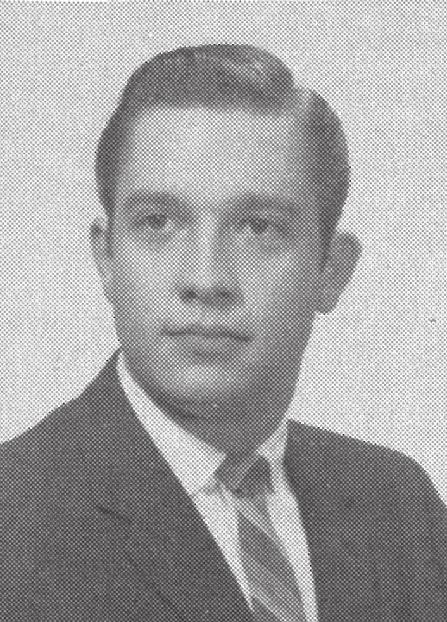
In the spring, Samford University received a $13 million gift from the estate of Julius W. “David” Davidson ’58, the second-largest single estate gift in the university’s history.
Davidson was a member of the first graduating class from Samford’s Homewood campus. After graduating with a Bachelor of Science in biology, Davidson went on to have a successful career helping countless people in medicine.
Davidson was a renowned eye surgeon at Callahan Eye Foundation, now known as UAB Callahan Eye. He died in March 2024 at the age of 86.
As a student at Samford, Davidson was an active member of the student body, serving as president during his senior year. He was a member of Lambda Chi Alpha Fraternity, Phi Kappa Phi Honor Society and Omicron Delta Kappa Honor Society member.
In a 2007 edition of Seasons, Davidson reflected on one of his favorite Samford memories—when he had the opportunity to carry the campus flagpole
from the former East Lake campus to Lakeshore Drive.
“Samford was formative in David’s life. It was not just a school he went to. It taught him how to think and values he held throughout his career of helping others,” said Gary Fenton, a recently retired development officer who befriended Davidson over the last five years.
When donors, like Davidson, establish estate or planned gifts, they become members of Samford’s 1841 Society, which recognizes and celebrates donors who share a common bond of philanthropy, a love of Samford and the vision to provide for future generations of Samford students. “It’s a true picture of planting seeds that will sustain Samford’s future,” said Bo Kerr, assistant vice president for university advancement. ◗
SCAN THE QR CODE TO LEARN MORE ABOUT THE 1841 SOCIETY.
We asked Bob Roller, Samford's director of athletics from 1997 to 2011, to reflect on the life and legacy of Pete Hanna, who died in May.
To be around Pete Hanna was like being with a close friend, a high school coach, or a Sunday school teacher. Pete was an “everyman” who just happened to be incredibly successful in many phases of his long and fruitful life.
I first met Pete when we were forming the Samford Athletics Foundation in 1997, and we connected by speaking on current events and the military history of my father in World War II. At the time of our first meeting,
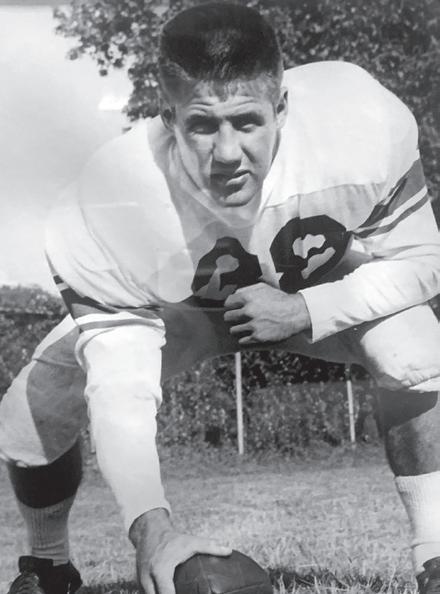
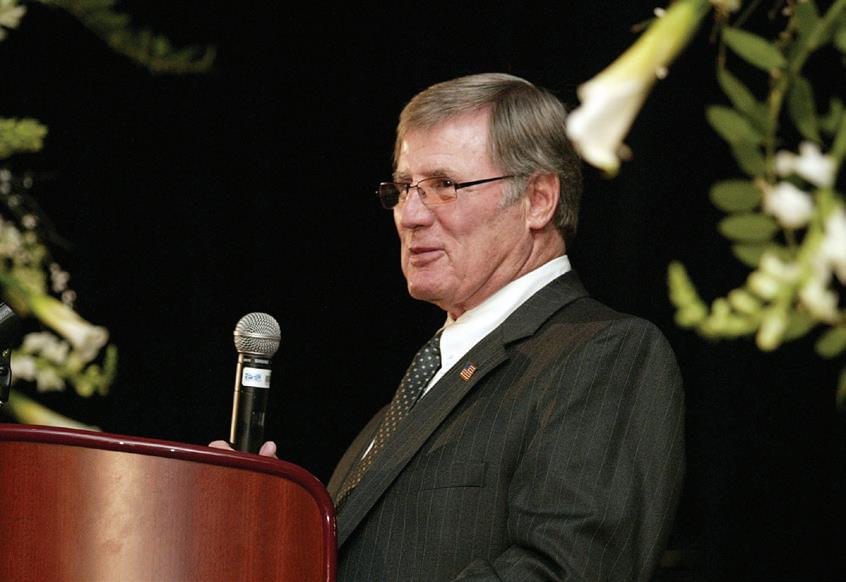
Samford’s athletics facilities were lacking in almost every sport, and we knew there was a lot of catching up to do to be more competitive.
Pete was extremely close to Tom and Marla Corts and said that he wanted to honor their longstanding service to Samford in a significant way. Seibert Hall had served us well as a basketball and volleyball venue in our formative years, but we knew a new arena would expand recruiting and improve fan involvement for our programs to grow.
Pete stepped up in a huge way with a transformational gift on one
stipulation. He asked that the Corts family be honored in a significant way, and the Tom and Marla Corts Arena was dedicated as part of the Pete Hanna Center announcement. I remember telling him the building may eventually get a nickname like “The Pete,” and he said that was great as long as the students loved coming to the games.
As the Pete Hanna Center approaches its 20th anniversary in a few years, the entire Samford Athletics department has been transformed by this facility leading the way to other improvements. Pete was a man of vision and faith, and his legacy will live on for years to come. ◗
Pete Hanna, a former student-athlete who became an integral philanthropist, led Hanna Steel Corporation for more than 60 years. On campus, the Pete Hanna Center, opened in 2007, and Pete Hanna Stadium, dedicated in 2023, are named in his honor. As Bob Roller predicted, the Pete Hanna Center is known by students today as “The Pete.”
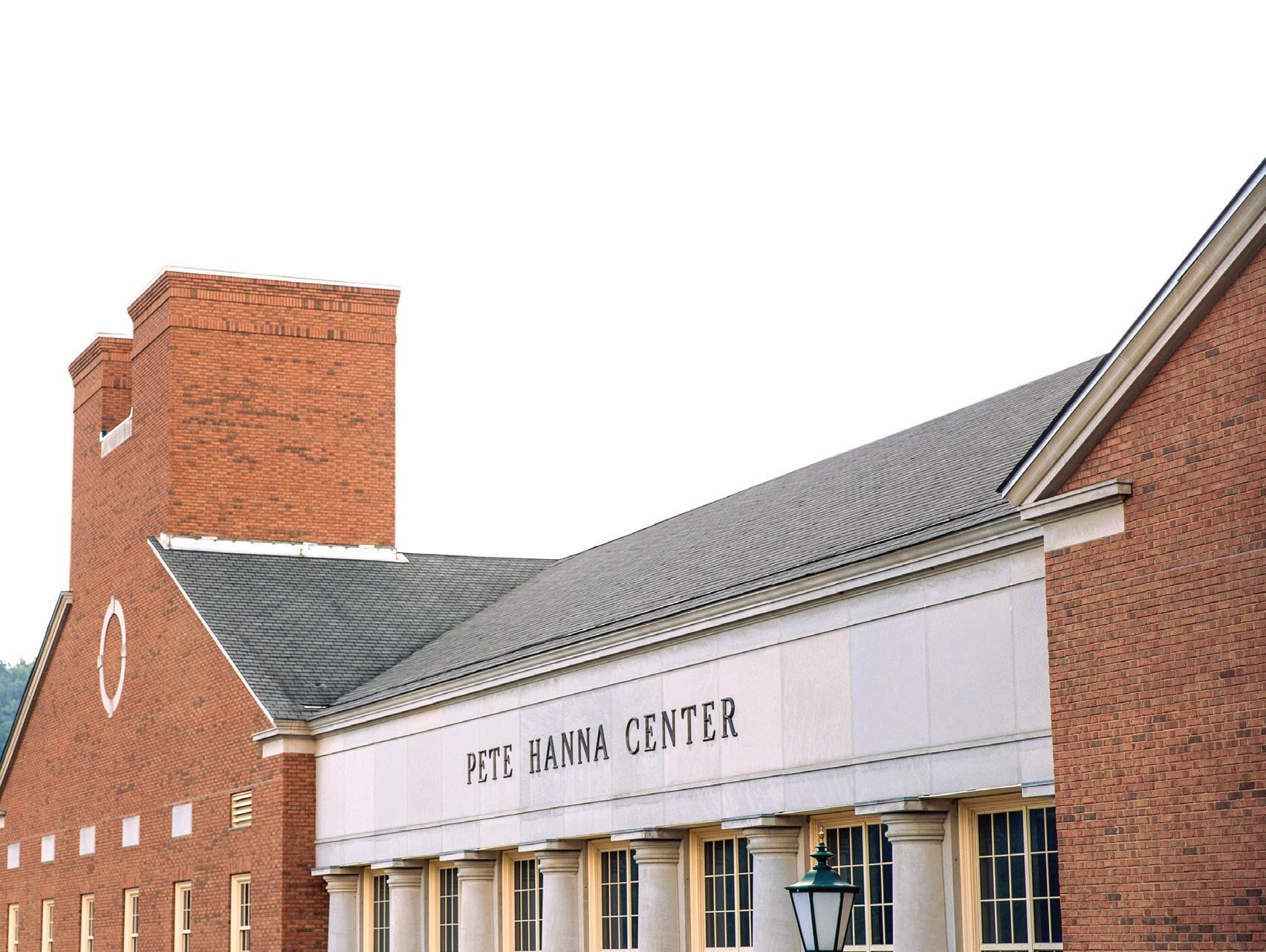
Samford’s Georgian-Colonial architecture, known for red-brick buildings, limestone columns and symmetrical designs, creates a cohesive and inspiring environment for learning and community. While design and building methods have evolved since Samford first began construction in Homewood in 1953, the commitment to Georgian-Colonial style remains.
As brand-new buildings, like the forthcoming Mann and Gaston residence halls, stand next to existing ones, you can’t help but notice the old and the new bricks are a perfect match. “This is because we have established a custom brick mixture for Samford,” said Jeff Poleshek, associate vice president for operations, planning and construction.
The creation of the brick blend dates back to the early 1950s, when Samford Hall became the first building constructed on the Homewood campus. The university’s longtime partner, Davis Architects, has ensured this blend remains consistent—even more than 70 years later.
“The consistency of our Samford brick is just one of a million intentional details we oversee when it comes to constructing new facilities and renovating existing ones,” Poleshek said “The people who came before us demonstrated great pride in the beauty of Samford’s campus, and we work to continue this tradition in all that we do.”

